PULSE
Leading the Path to a Cure Through Research
A past president of the American Society of Clinical Oncology and former member of the LRF Scientific Advisory Board, Dr. Vose is committed to advancing lymphoma/CLL research and improving the lives of all those touched by this blood cancer. page 10
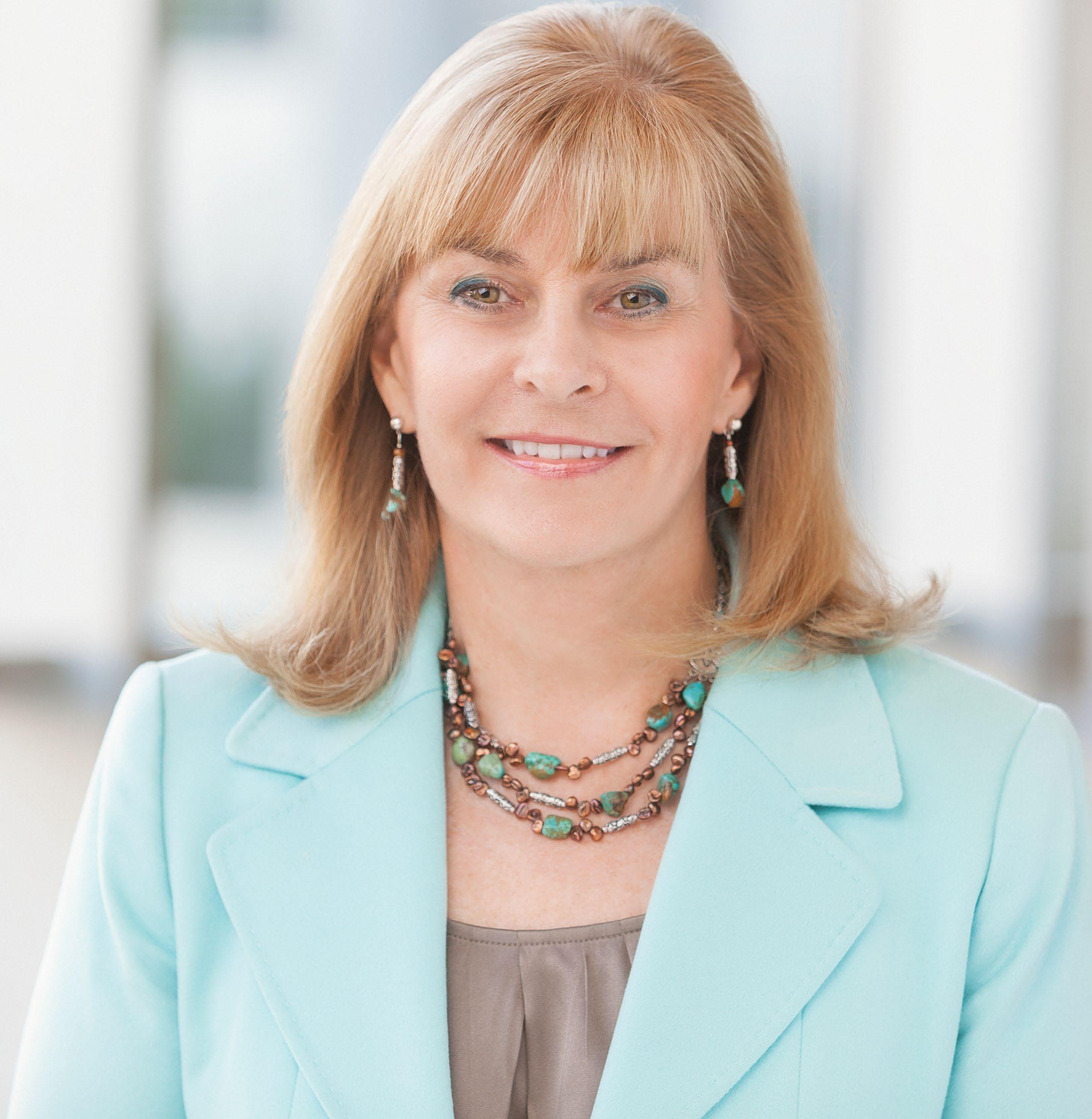
A Caregiver That Keeps On Giving
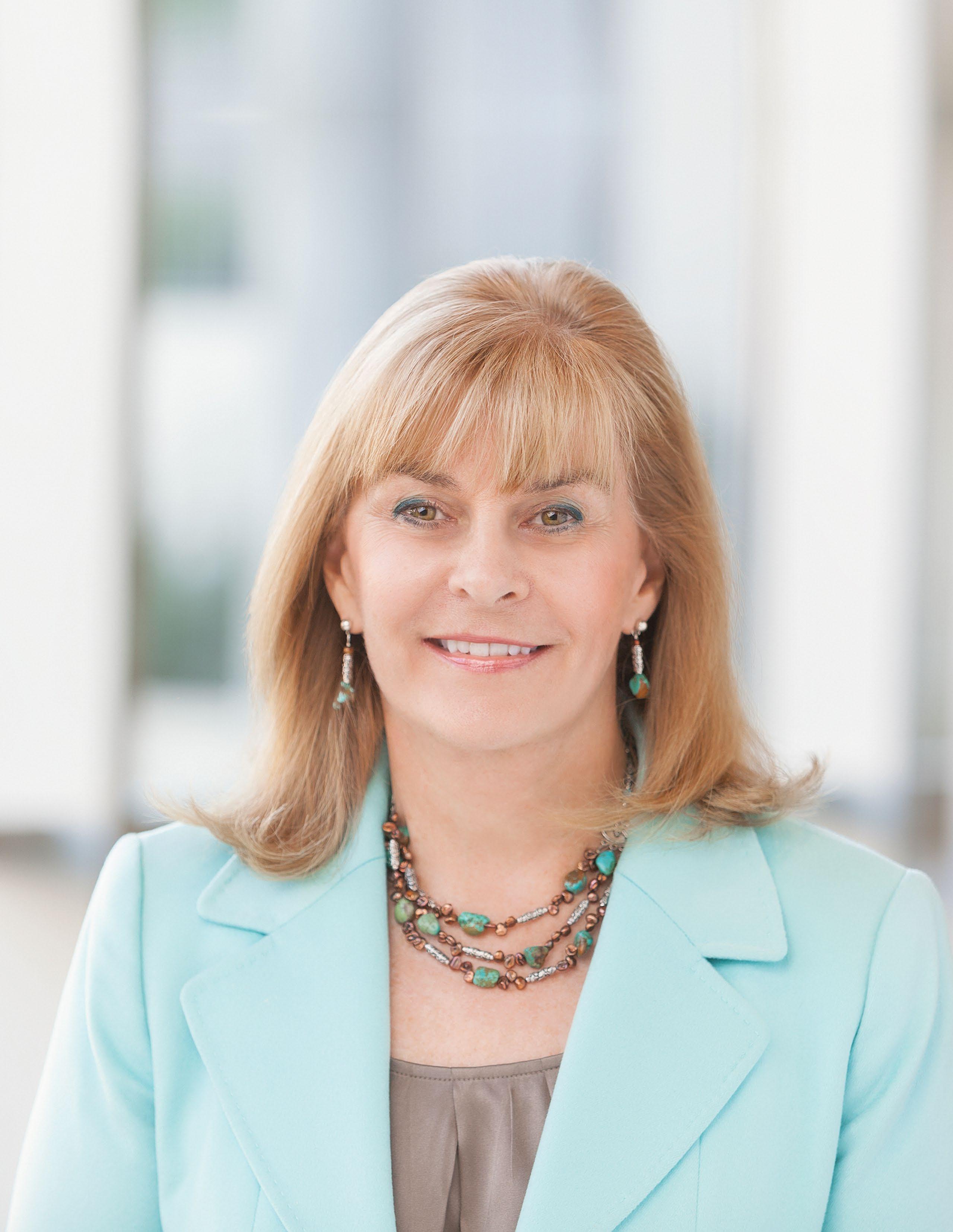
Fall 2022 A Publication for Friends of the Lymphoma Research
Foundation
page
24
PULSE
Publication
Pulse is a publication of the Lymphoma Research Foundation, providing the latest updates on the Foundation and its focus on lymphoma research, awareness, and education.

The Lymphoma Research Foundation is devoted to funding innovative lymphoma research and serving the lymphoma community through a comprehensive series of education programs, outreach initiatives, and patient services.
FOUNDATION LEADERSHIP
Steven Eichberg Chair, Board of Directors
Sonali M. Smith, MD, FASCO Chair, Scientific Advisory Board
Meghan E. Gutierrez Chief Executive Officer
Editor Nichole Musumeci
Associate Editor
Paige Butler
Editorial Board
Micah Banner
Jesse Brown Victor Gonzalez
Kyle Haines
Eva Migliore Sarah Quinlan
Rebecca Rausch Whitney Steen
Laura Wallenstein
CONTACT US
National Headquarters Wall Street Plaza 88 Pine Street, Suite 2400 New York, NY 10005
Tel: 212 349 2910 lymphoma.org
LRF Helpline 800 500 9976 helpline@lymphoma.org
Contact the Editor
For more information or to share comments, please email editor@lymphoma.org.
Pulse © 2022 Lymphoma Research Foundation
LYMPHOMA RESEARCH FOUNDATION’S YOUTUBE CHANNEL
The Lymphoma Research Foundation’s (LRF) YouTube channel offers a wide variety of educational videos to help the lymphoma community learn about lymphoma. These videos provide disease-specific information, as well as education regarding diagnosis, treatment options, clinical trials, and other resources for people dealing with a lymphoma diagnosis.
Visit YouTube.com/c/LymphomaResearch to watch and subscribe.
A
for Friends of the Lymphoma Research Foundation
PULSE | FALL EDITION 2022
TABLE OF CONTENTS
Leading the Path to a Cure Through Research
Having grown up in a medical family, Dr. Julie M. Vose was always drawn to a career as a doctor. A past president of the American Society of Clinical Oncology and former member of the LRF Scientific Advisory Board (SAB), Dr. Vose is committed to advancing lymphoma/chronic lymphocytic leukemia (CLL) research and improving the lives of all those touched by this blood cancer.
Meet the Newly Elected LRF Scientific Advisory Board Members
LRF welcomed three new members to its elite Scientific Advisory Board (SAB). The new members represent distinct specialties that will contribute to the global impact of the Foundation.
A Caregiver That Keeps On Giving
Roy Bridges has the type of life story you need to read to believe. It starts on a farm in Georgia and goes all the way to space and back, as Roy was one of the select few pilots of the Space Shuttle Challenger for NASA in the 1980s. But even astronauts must come back to Earth, and in Roy’s case, that return included his daughter Tanya’s lymphoma diagnosis in 2002.
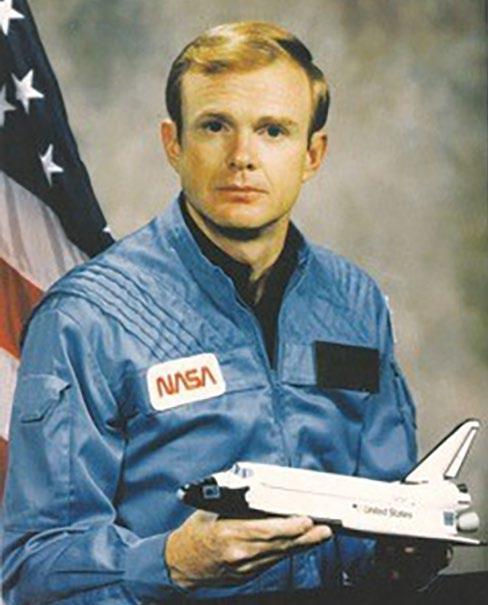
Impact
From the Field
Where Are They Now?
Living With Lymphoma
Patient Perspectives: Mobile Health Technology Helps Blood Cancer Patients Navigate Diagnosis

[ DEPARTMENTS ]
4
Community
Philanthropy in Action How to Support LRF
10
20
[ FEATURES ]
10
18
24 1
VIRTUAL EDUCATION PROGRAMS

Despite the pandemic, there is no interruption in our commitment to providing up-to-date patient education for people with lymphoma. The Lymphoma Research Foundation (LRF) is using digital platforms to deliver virtual patient education programs including Virtual the Ask the Doctor About Lymphoma series, Lymphoma Workshops, and the North American Educational Forum on Lymphoma, for people with lymphoma and their loved ones.
Whether you are newly diagnosed, want detailed information about your lymphoma subtype, are looking for ongoing support, or seeking help with long-term survivorship, LRF is here to help. Visit lymphoma.org/programs
Virtual Education Programs: 11.29 Información Sobre CAR T Cell Therapy 1 12.7 Update on T-Cell Lymphoma Webinar 1 12.15 Ask the Doctor About Lymphoma Treatment Options and Clinical Trials
to register and learn more.
FROM THE CEO
Under the leadership of our expert Scientific Advisory Board (SAB) members and due to the dedication of our grantees, the Lymphoma Research Foundation (LRF) continues to innovate and drive progress—helping to advance cures and support lymphoma patients and their loved ones. It is with your support that we are able to continue this vital work, at the forefront of research and patient care.
In this issue of Pulse, we profile a past member of the Foundation’s SAB, Julie M. Vose, MD, MBA, from the University of Nebraska Medical Center, who is now leading the Foundation’s global Mantle Cell Lymphoma Consortium as a member of its Executive Committee. Dr. Vose describes the progress she has witnessed in lymphoma/chronic lymphocytic leukemia (CLL) research over the span of her career and how she continues to advance the field through the development of novel therapies. We are also pleased to introduce you to three new members of the SAB, all on the cutting edge of lymphoma research and willing to lend their expertise to the Foundation’s mission.
This issue also highlights LRF’s leadership in mobile health technology with the update of its first-of-its-kind mobile app, Focus on Lymphoma. Lymphoma expert Dr. Priyanka Pophali describes how mobile health technology, including Focus on Lymphoma, is rapidly changing healthcare and disease management and why apps such as these can be an important resource for patients and their loved ones. Lastly, this issue also features a different type of support—a touching story of a caregiver who stood by his daughter’s side throughout her experience with lymphoma, underscoring the crucial role that lay caregivers play in a patient’s journey.
As we approach this season of giving, I want to express my gratitude to you and thank you for your ongoing support as we work towards a brighter future for all those touched by this disease.
Sincerely yours,
 Meghan Gutierrez Chief Executive Officer
Meghan Gutierrez Chief Executive Officer
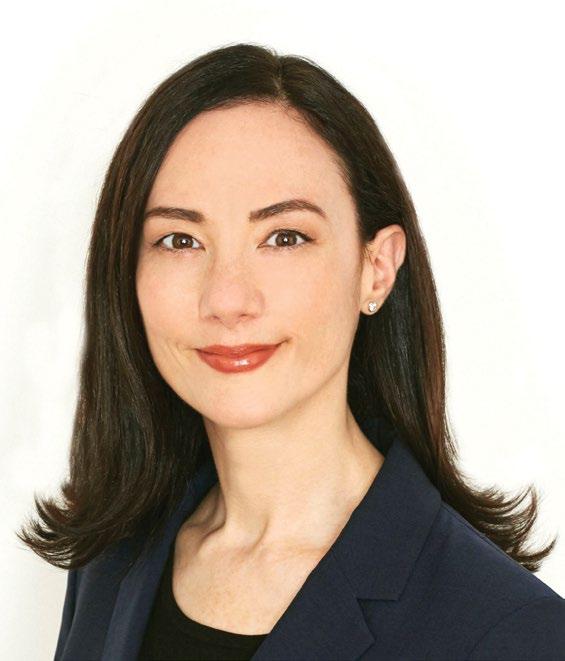
3
PHILANTHROPY IN ACTION
BLOOD CANCER AWARENESS MONTH RAISES MORE THAN $35,000

This September, during Blood Cancer Awareness Month (BCAM), supporters of the Lymphoma Research Foundation (LRF) raised over $35,000 to provide resources and hope to patients, survivors, and caregivers. In addition, 65 buildings and landmarks across the globe participated in our Light it Red campaign to highlight our mission on World Lymphoma Awareness Day (September 15). Plans are already underway for BCAM 2023—it is never too early to make plans for your business or family to join us in lighting the path to cures.
LRF ANNUAL GALA RAISES MORE THAN $1M

LRF’s community of supporters and friends “rose to the occasion” at the Ziegfeld Ballroom in New York City on September 29 at LRF’s Annual Gala. This year’s event honored Steven M. Horwitz, MD, of Memorial Sloan Kettering Cancer Center, with the Distinguished Leadership Award, and Pfizer with the Corporate Leadership Award, in recognition of their commitment to serving lymphoma patients and advancing cures. The evening included an exciting live auction, a rousing Raise it for LRF segment, and a special message of hope from Academy Award-winning actor and lymphoma survivor Jeff Bridges. The 2022 Annual Gala raised more than $1.1M in support of the LRF mission.
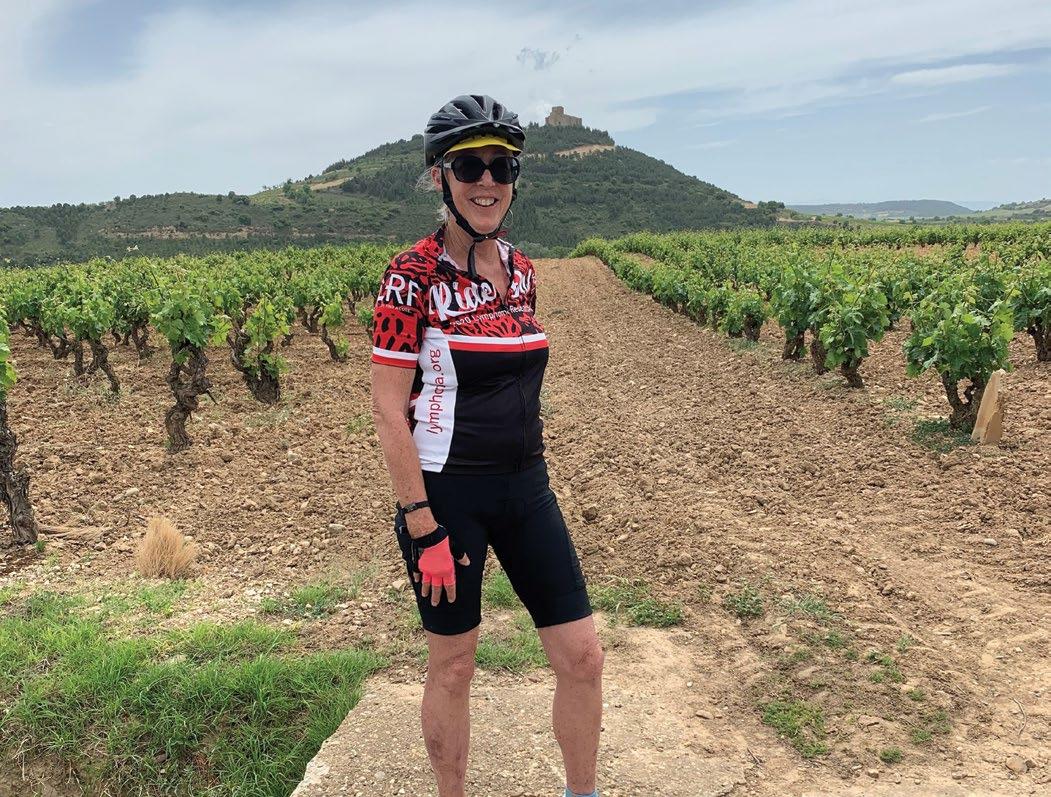
LYMPHOMA RESEARCH RIDE RAISES MORE THAN $175,000
While the in-person components of the Lymphoma Research Ride were canceled due to weather conditions stemming from Hurricane Ian, it didn’t put a damper on the participants’ commitment to fundraising in support of the lymphoma community. This year, riders joined together to raise more than $175,000 to power resources for lymphoma patients and lifesaving research. Although the inclement weather prevented riders from cycling through the beautiful back roads of Barnesville, Maryland, they still had the opportunity to toast their successes and be recognized for their dedication to raising funds and awareness for lymphoma patients during a virtual celebration.
[ COMMUNITY IMPACT ] PULSE | FALL EDITION 2022
MEDTRONIC TWIN CITIES MARATHON RAISES
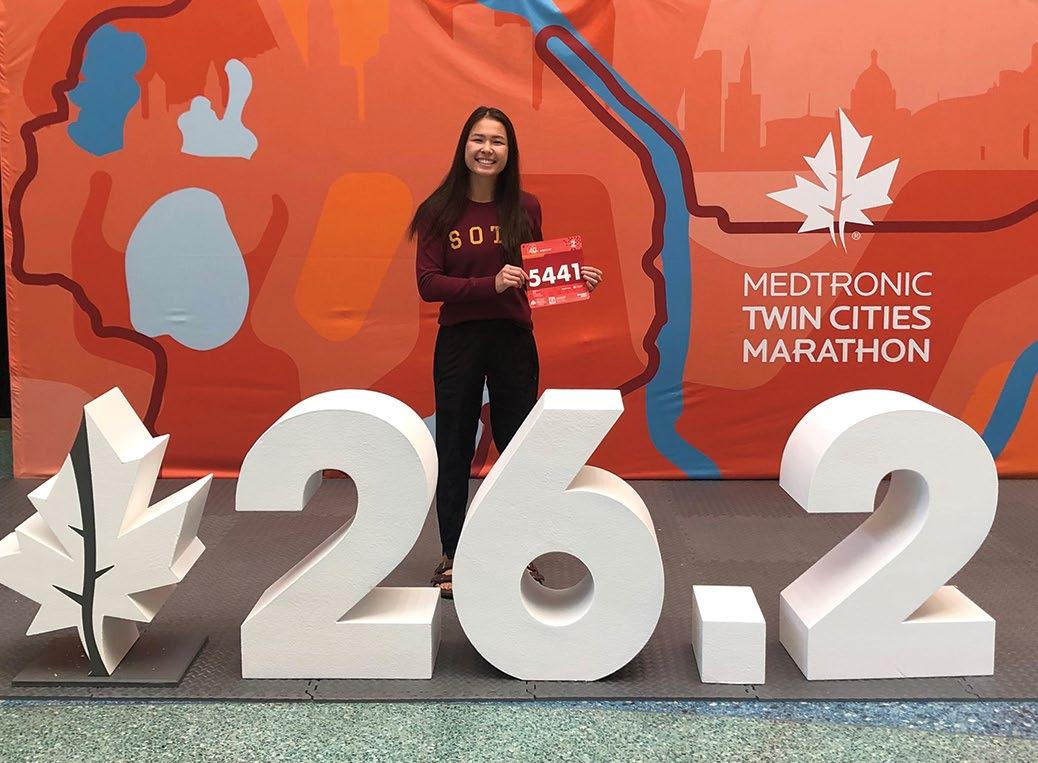
MORE THAN $7,500
Members of the LRF community joined more than 26,000 runners for the 40th anniversary Medtronic Twin Cities Marathon, held on Sunday, October 2. Seven runners representing Team LRF raised more than $7,500 in support of the lymphoma community, including Georgia, who completed her first 10-mile race to honor her father; and Emily, who ran the full marathon in honor of her grandfather. Did you know that LRF hosts and partners with endurance events across the country so that athletes can train, challenge themselves, and fundraise to support the LRF mission? To learn more, visit lymphoma.org/endurance today.

LRF SWIRL: NEW JERSEY GATHERS GUESTS FOR DAY OF PHILANTHROPY AND WINE
Supporters of LRF gathered at the Laurita Winery in New Egypt, New Jersey, on October 9 for the inaugural Swirl: New Jersey event. Guests enjoyed a sampling of sustainably grown wines from Laurita Winery paired with delicious bites as they raised tens of thousands of dollars in critical funds in support of the Foundation’s work.
AMAZON SMILE
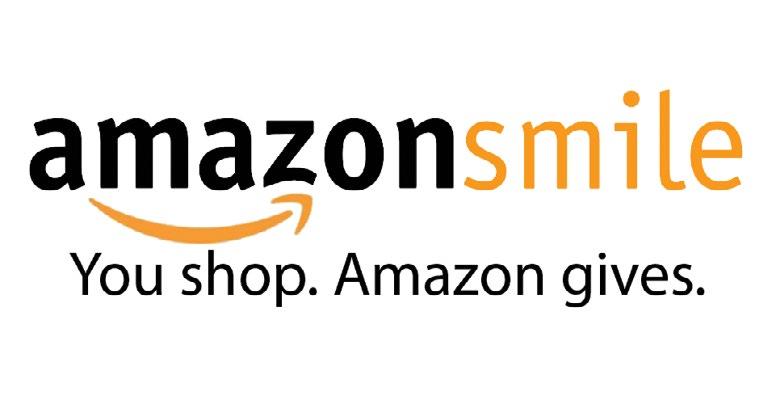
is a simple and automatic way for you to support the Lymphoma Research Foundation (LRF) every time you shop, at no cost to you. Every eligible AmazonSmile purchase earns LRF 0.5% in donations all year long whenever you shop on AmazonSmile. AmazonSmile is the same Amazon you know. Same products, same prices, same service.
Visit lymphoma.org/amazonsmile to learn more.
5
TRANSFORMING LOSS INTO FOR ADOLESCENTS AND YOUNG ADULTS WITH LYMPHOMA
HOPE
No parent should ever have to go through the excruciating experience of losing a child. When Ellen M. Walker lost her only son, Paul, to lymphoma in 2012, she was devastated. She channeled her grief into creating The Paul Foundation to support young people and their families facing a lymphoma diagnosis so that no one has to go through what she and her son Paul endured.
Paul Walker Schaffel was a 21-year-old senior at Wesleyan University in 2011 when he noticed his swollen glands. It wasn’t long before Paul’s symptoms worsened, including night sweats, extreme fatigue, and loss of appetite. He returned home to New York to seek medical care, where he was first diagnosed with Hodgkin lymphoma and eventually non-Hodgkin lymphoma. Paul underwent his first round of chemotherapy in December 2011. While in treatment, he continued his studies and graduated with honors in the spring of 2012. In the same year, Paul was accepted to Harvard Law School but succumbed to nonHodgkin lymphoma before the start of his first year.
Before he died, one of Paul’s final wishes was for his mother, Ellen, to create a foundation to fund research and raise awareness of non-Hodgkin lymphoma so that
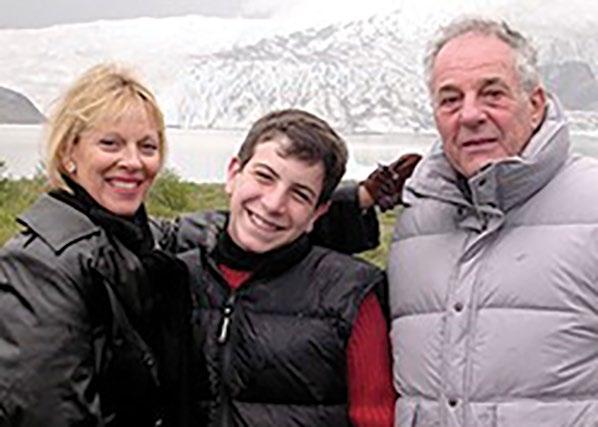
other young people and their families could get the help they needed. In Paul’s memory, Ellen created The Paul Foundation, a nonprofit with a mission to fund non-Hodgkin lymphoma research and provide those affected by the disease, their families, and healthcare professionals with the tools to identify, treat, and cure non-Hodgkin lymphoma.
“During Paul’s final days, it became clear to him that he was going to die,” Ellen explained. “He wanted to go home while he still could, and about two days before he died, Paul gathered his friends and family and gave each of us a job or two to do. Paul asked me to create a foundation in his name to help make sure that what happened to him would not happen to anyone else. And that’s how The Paul Foundation came to be.”
[ COMMUNITY IMPACT ]
PULSE | FALL EDITION 2022
“I’m always thrilled and delighted to talk to survivors who have beat lymphoma. I wish I had a survivor of my own, but I don’t. So now this is my job. I’ve got to talk it up. I’ve got to say his name.”
— Ellen M. Walker
Drawing on her expertise as a practicing attorney in New York, as well as unwavering persistence, Ellen established The Paul Foundation in September 2012. She immediately began raising money to fund research and raise awareness of lymphoma in adolescents and young adults (AYA)—an often underserved and understudied population. One of the early steps she took was to connect with the Lymphoma Research Foundation (LRF). In September 2013, The Paul Foundation made a $400,000 contribution to LRF to honor Paul and became a Founding Sponsor of LRF’s Adolescent and Young Adult (AYA) Initiative, which aims to support the lives of young people diagnosed with lymphoma. LRF honored The Paul Foundation with the Distinguished Service Award at the LRF 2014 Annual Gala.
“We are proud to be the Founding Sponsor of LRF’s AYA Initiative to honor Paul’s wishes and to create a new mechanism for funding research, which is so important when it comes to learning more about and developing new treatments to address lymphoma in young people,” Ellen explained. “LRF immediately understood our vision and shared our goal to establish dedicated lymphoma resources specifically for adolescents and young adults.”
On a personal level, Ellen says The Paul Foundation and her work with LRF provides her with the opportunity to give back, talk about her son in a positive way, and have others keep his memory alive. Since its inception in September 2012, The Paul Foundation has committed almost $1 million toward its mission.
“LRF has been a fantastic partner, and it’s been gratifying to see the AYA Initiative grow. Young adults continue to be an underserved population, but there are now researchers who study lymphoma as it relates specifically to Paul’s age group. That was not the case when Paul was diagnosed with lymphoma—so that’s progress!”
Today, Ellen resides in Florida and spends most of her spare time raising money to fund lymphoma research, from hosting charity dinners to donating to LRF. When
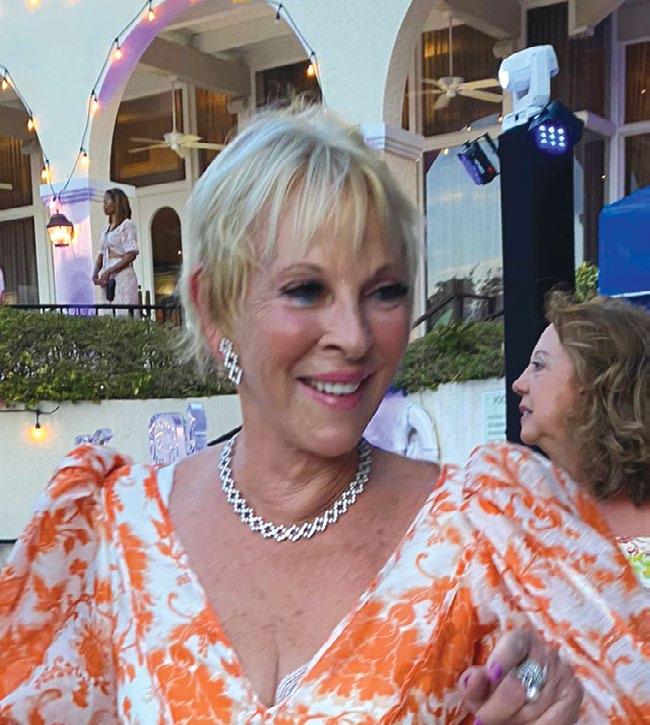
she’s not keeping Paul’s name alive through her work, you can find her on a tennis court.
Ellen’s hope is that The Paul Foundation and LRF can help even one mother, like herself, avoid the pain and sadness she endured.
“I’m always thrilled and delighted to talk to survivors who have beat lymphoma. I wish I had a survivor of my own, but I don’t. So now this is my job. I’ve got to talk it up. I’ve got to say his name.”
To learn more about The Paul Foundation, visit pwsfoundation.org/home.html
A cancer diagnosis is unexpected, especially for adolescents and young adults (AYAs) in their teens, 20s, and 30s.
The Lymphoma Research Foundation (LRF) is dedicated to assisting young lymphoma patients and survivors with addressing the unique medical, psychosocial, and access challenges they may encounter by providing support, resources, and programs.
RESOURCES FOR AYAS:
• Peer-to-Peer Support
• Lymphoma Facts & Guides
• Digital Education & Tools
• In-Person Education & Networking Programs
• LRF Helpline
Visit lymphoma.org/aya to learn more.
7
The Lymphoma Research Foundation’s (LRF) mission is to eradicate lymphoma and serve those touched by this disease. We achieve this together—as one community—with confidence, compassion, and care. Supporting LRF helps ensure that the Foundation continues to fund the most innovative research and support lymphoma patients, survivors, and their loved ones when they need it most.
Gifts made to LRF are either classified as restricted or unrestricted donations. Both types help to further the Foundation’s mission, with the major difference being that restricted funds are set aside, or designated, for a specific use. Unrestricted gifts allow Foundation and scientific leadership to support areas and programs with the greatest need.
One-Time Donations Recurring Monthly Gifts Tribute Gifts Appreciated Securities Qualified Charitable Distribution from IRA Donor Advised Funds Cryptocurrency Insurance Beneficiary IRA Beneficiary Wills and Living Trust Gifts HOW TO SUPPORT LRF [ COMMUNITY IMPACT ] EASY WAYS TO GIVE TAX-ADVANTAGE GIFTS LEGACY GIVING PULSE | FALL EDITION 2022
UNRESTRICTED Advocacy Communication Efforts (Pulse, Lymphoma.org, Social Media Engagement) Clinical Trials Information Service (CTIS) Events Helpline Lymphoma Support Network (LSN) Scientific Meetings and Consortia Staff Support RESTRICTED General Research Grants Helpline Patient Aid Grants Subtype-Specific Research Grants INDIVIDUAL GIVING IMPACT (EXCLUDES CORPORATE SUPPORT) EXAMPLES OF HOW YOUR SUPPORT CAN IMPACT THE LYMPHOMA COMMUNITY: Provides a Patient With a Patient Aid Grant $100 Funds a Professional Development Grant $10,000 Sends a Researcher to an LRF Scientific Meeting $2,000 Sponsors an LRF Research Scholar $30,000 Funds a Young Investigator Presentation $5,000 Funds a Postdoctoral Fellowship Award $125,000 Funds a Career Development Award $250,000 DONATIONS 9
LEADING
THE PATH TO
A CURE THROUGH RESEARCH
Born and raised in Mitchell, South Dakota, Julie M. Vose, MD, MBA, grew up in a medical family. Her father was a pathologist, and her mother was a nurse, so the goal of one day becoming a doctor was influenced by her day-to-day experience. After graduating college with a degree in medical technology, Dr. Vose decided to follow in her father’s footsteps and attended medical school at the University of Nebraska Medical Center (UNMC) in Omaha. While she initially thought she might want to be a pathologist like her father, she decided instead to go into internal medicine, and then later, oncology and hematology.
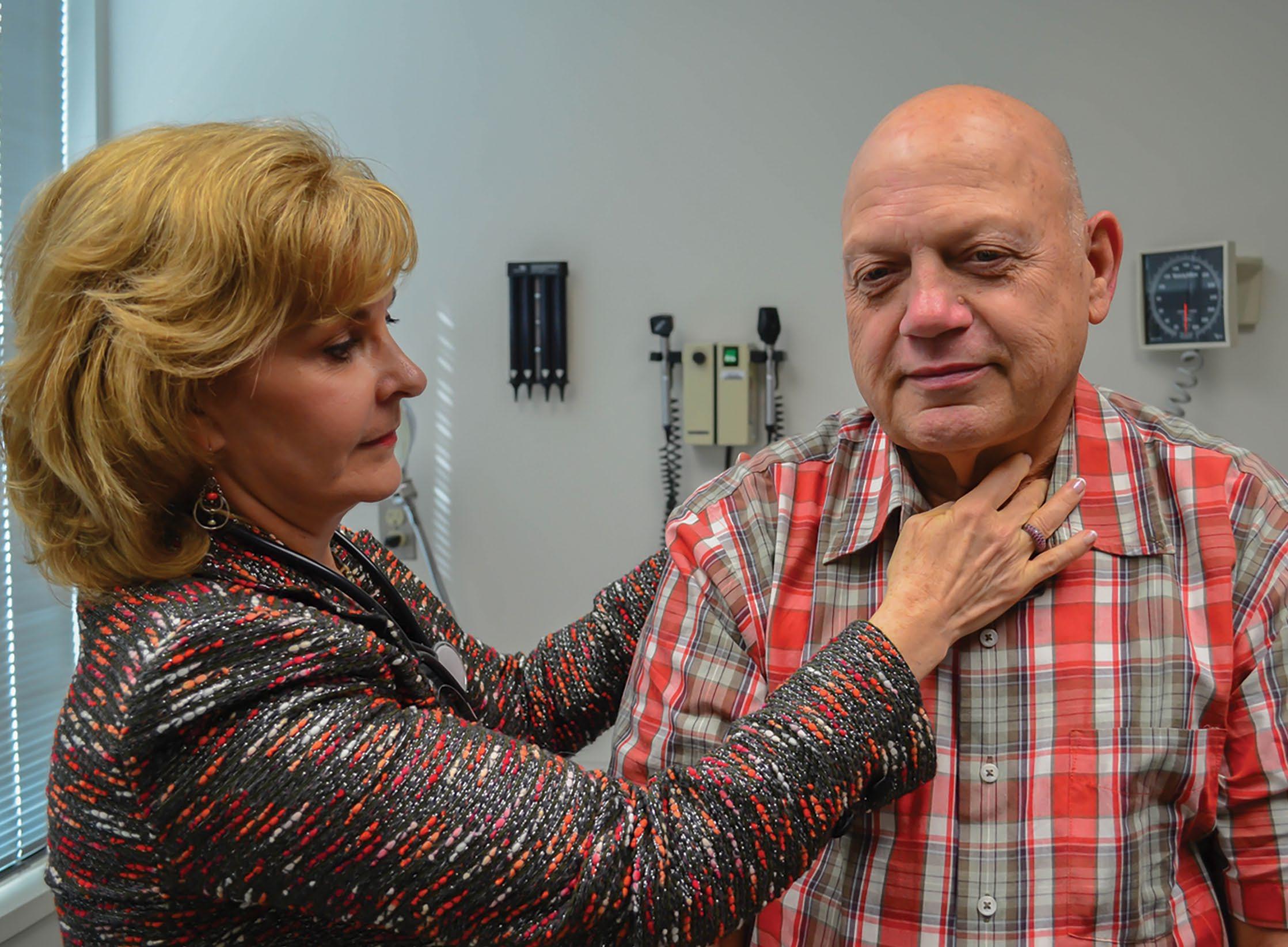
PULSE | FALL EDITION 2022
“My dad gave me the opportunity to work in his lab in high school and college, and I found myself fascinated with blood cells and cancer cells,” explained Dr. Vose. “While in medical school, I grew very interested in lymphomas specifically, thanks to the research of one of my mentors. I’ve been very fortunate to have had great mentors in my life who have guided me into medicine and research, starting with my father, and throughout my early steps into the field.”
“Every year, we conduct new research and make new discoveries that expand our knowledge of lymphoma,” said Dr. Vose. “Many patients with lymphoma are curable or very treatable, and it’s gratifying to see the work we’ve poured into research make a meaningful difference in the patients’ lives. The fact there are so many success stories in treating lymphoma makes our research even more rewarding.”
The Power of Clinical Trials
Today, Dr. Vose is an oncology and hematology physician and the chief of the Division of Oncology and Hematology at her alma mater, where her research centers on treating patients with lymphoma and chronic lymphocytic leukemia (CLL). She has also had a clinical focus on chemotherapy, immunotherapy, cellular therapy, and pathway-directed agents for treatment and clinical trial research. In her limited spare time, she enjoys painting in watercolor and acrylics and the occasional pickleball match.
One of the aspects that drew Dr. Vose to the field early on was witnessing the remarkable recoveries of patients with lymphoma who responded well to treatment.
A past president of the American Society of Clinical Oncology and former member of the Lymphoma Research Foundation (LRF) Scientific Advisory Board (SAB), Dr. Vose is actively involved in large-scale clinical research with the Nebraska Lymphoma Study Group at UNMC, using large retrospective databases and genomic analysis associated with those specimens and patient information. In addition, she’s involved in clinical trials with novel therapies, including oral agents, pathway-directed agents, monoclonal antibodies, and most recently, chimeric antigen receptor (CAR) T cells.

“Research into novel therapies is important because lymphoma is very heterogeneous, with many different types and subtypes, which means no one treatment is going to be successful in treating all of them,” said Dr. Vose. “We need to develop multiple treatments that attack the lymphoma from different angles and potentially work together. I’ve enjoyed working on the clinical trials of treatments that have gained Food and Drug Administration (FDA) approval and have gone on to help a specific patient population.”
FDA approvals of novel therapies for lymphomas can take eight to ten years or longer, which creates a unique set of challenges, but Dr. Vose remains undeterred, finding encouragement among her colleagues with a shared common focus.
“Clinical trials are always difficult because there’s the funding element and all that patients have to go through, in addition to the regulatory requirements, and in some cases, potential side effects from the medicine,” explained Dr. Vose. “It takes an army of researchers to conduct clinical trials in multiple institutions and to be able to collect and evaluate the data for potential submission to the FDA.”
Some of those clinical trials are yielding promising results.
“In the last few years, some of the most interesting developments have been the development of CAR-T cells and the continued expansion of those to treat different
Continued on the next page
“Every year, we conduct new research and make new discoveries that expand our knowledge of lymphoma.”
11
types of lymphomas, as well as potential combination treatments,” said Dr. Vose. “And then even more recently, there’s been some promising work with bi-specific antibodies and their potential development for use with different types of lymphomas. I’m also encouraged by newer therapies, such as pathway-directed agents that are being developed and are showing promise in treating some of the slower-growing types of lymphoma.”
When it comes to what lymphoma/CLL patients can do to contribute to scientific research, Dr. Vose encourages patient participation in clinical trials and that patients make their personal information accessible for large lymphoma databases that look at outcomes for patient populations with specific types of lymphomas. According to Dr. Vose, the clinical trials today are the building blocks to developing the new drugs and new treatments that will treat the patients of tomorrow.
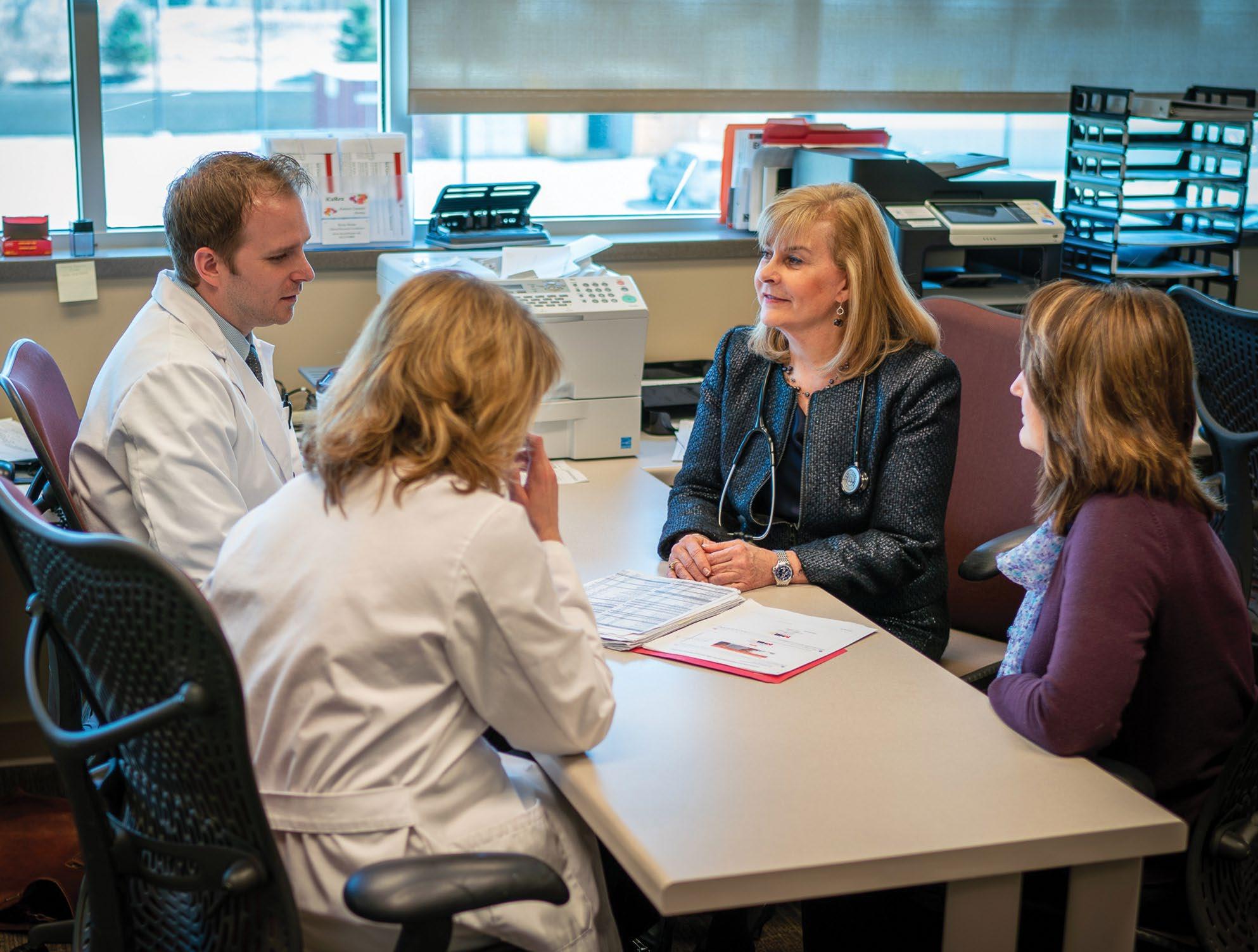
“The only way to increase our knowledge and to enhance lymphoma research is by conducting these clinical trials, and that’s why the funding of research and clinical trials is so important,” she said. “Anyone interested in participating in a clinical trial should reach out to their oncologist, who may be able to help direct them to specific clinical trials in process. Organizations like LRF provide key information and resources to help connect patients with clinical trials as well.”
Supporting the Lymphoma Community Dr. Vose first got involved with LRF many years ago and has seen the Foundation grow into the nationwide organization it is today, helping thousands of lymphoma patients with education, grants, and resources. Before the pandemic, Dr. Vose was an active participant in past LRF walks, which took place every spring in Nebraska, to raise money for lymphoma research and to increase
[ FROM THE FIELD ]
PULSE | FALL EDITION 2022
community awareness of lymphoma and support the needs of lymphoma patients and their families.
“LRF has been instrumental in supporting important lymphoma research in clinical trials and provides lymphoma patients with valuable, trusted information and the emotional support and community they may need during treatment.”
Equally important, according to Dr. Vose, are the support and resources that LRF provides to caregivers, who are involved day to day with their loved one’s treatment plan. “I strongly recommend that patients have a caregiver or family member come with them to their appointments,” said Dr. Vose. “There’s a lot of detailed information to take in, and four ears are better than two. Caregivers are also instrumental in carrying out treatment instructions and in providing necessary moral and physical support throughout the treatment process.”
Promising Developments for the Future
Having been in the field for over 30 years, Dr. Vose is encouraged by the continued progress in understanding how various types of lymphomas operate. She continues to be motivated by the goal of eventually eradicating lymphoma.
“We keep learning more and more about the biology behind different types of lymphoma, which enables us to choose specific therapies based on that biology,” said Dr. Vose. “And on a day-to-day basis, the fact that we are able to cure many of our patients, or at least put them into remission for very long periods of time, is personally gratifying. I have patients whom I treated over 30 years ago and who are still coming in to see me for yearly checkups. I recently had one very nice patient thank me for caring for them years ago and giving them the chance to enjoy their nine grandchildren that they wouldn’t have otherwise known.”
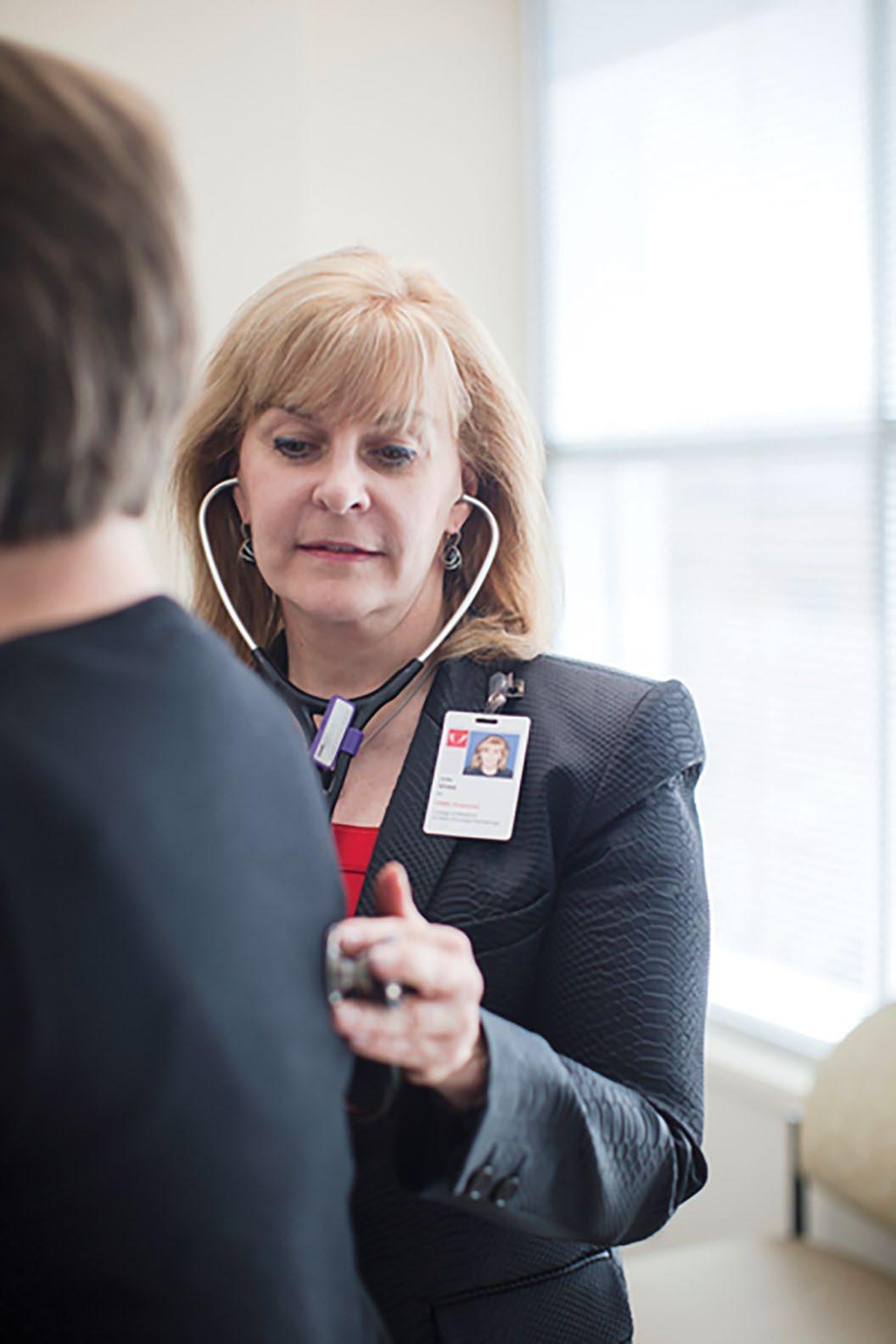
13
WHERE ARE THEY NOW?
PAOLO STRATI, MD
When did you become interested in the study of medicine? In lymphoma, specifically?
My pathway to medicine has not been linear nor as smooth as you would think, as pretty much nothing in my life [has been]. Coming from a past of financial and social hardship, I have always been used to moving the center of attention outside of myself and focusing on others’ needs. This has naturally brought me to work that would allow me to continue to care for others. During medical school, thanks to an amazing mentor, Dr. Federico Caligaris-Cappio, I fell in love with the biology of lymphoid malignancies and remained fascinated by the fast and dynamic development of their treatments. The latter made me realize I could not just simply care for specific individuals, but during a lifetime, I could impact the lives of an entire population of patients. That was very powerful for me, and this love has only grown over the last 20 years.
At what point in your career did you receive funding from the Lymphoma Research Foundation (LRF)? What kind of grant(s) did you receive?
I received the Lymphoma Research Foundation (LRF) Lymphoma Scientific Research Mentoring Program (LSRMP) award in 2018, during my final years of Hematology-Oncology Fellowship at The University of Texas MD Anderson Cancer Center, Houston, Texas.
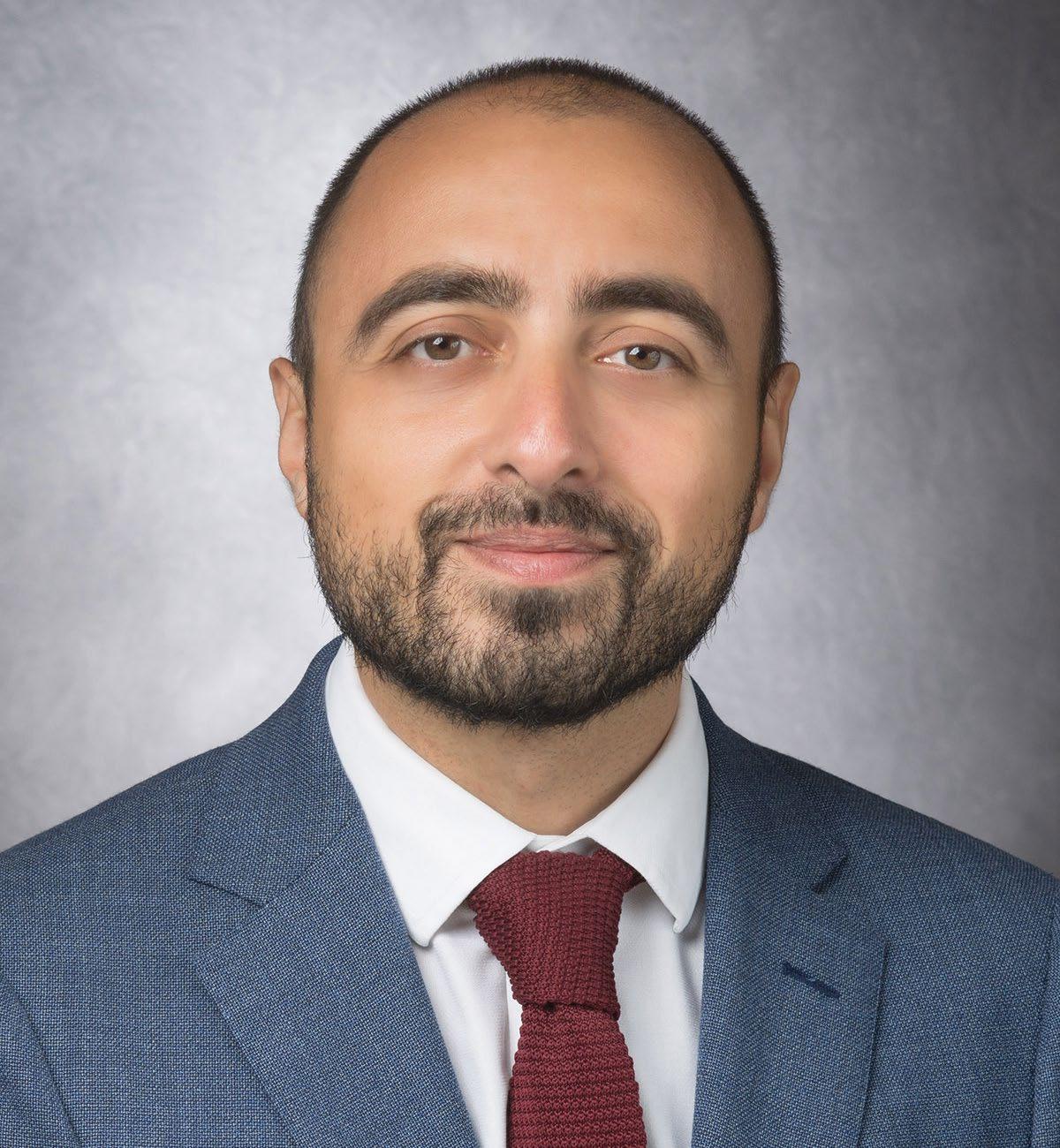
I was then lucky to receive, only one year later, the LRF Career Development Award (CDA), as I started
my academic appointment assistant professor in the Department of Lymphoma and Myeloma in the same institution. I cannot truly emphasize enough how, in different ways and at different stages of my life, these grants have played a critical role in my personal growth and career.
What scientific project did you pursue as part of your LRF research grant(s)?
As part of my LRF mentoring program award, I worked on a project aimed at targeting macrophages to improve the efficacy of frontline immunotherapy for the treatment of patients with indolent B-cell lymphoma. With the guidance of my mentors, I have generated novel translational data to support this project, now published on Blood Advances, and wrote two investigator-initiated studies, one of which has now completed enrollment and that I hope to present soon. As part of my LRF CDA, I have worked on a project aimed at manipulating macrophage biology to mitigate toxicities associated with the use of CAR [chimeric antigen receptor] T-cell therapy in patients with aggressive B-cell lymphoma. With the support of my LRF and intramural mentors, Dr. Sattva Neelapu and Dr. Michael Green, we have published on Nature Medicine the rationale for a novel investigator-initiated study, whose results will be presented at the upcoming annual meeting of the American Society of Hematology.
[ FROM THE FIELD ]
PULSE | FALL EDITION 2022
How has the treatment landscape for lymphoma/ chronic lymphocytic leukemia (CLL) changed since you first started conducting your research?
The therapeutic landscape of lymphoma is very dynamic, which is the main driver for my enthusiasm in the field. Since I first started conducting my LRF-funded research, the field has quickly moved from autologous CAR T-cell therapies to allogeneic novel cellular therapies. The latter show promising activity, which significantly improved the safety profile with the advantage of not being immunologically impacted by the patient’s previous treatment and is readily available (“off-the-shelf”). I am currently leading two clinical trials investigating the safety and efficacy of two allogeneic NK [natural killer] cell-based cellular therapies, and their future seems bright. Bispecific antibodies are also starting to steal CAR T-cell therapy’s thunder, with novel macrophage-targeting bispecific drugs finally appearing on the horizon. While it is not yet primetime for the latter, I am thrilled to be an active part of their development.
How has your LSRMP and CDA research impacted the work you do today?
The research I have generated through the LRF LSRMP and CDA has fundamentally defined who I am today. Thanks to the clinical research expertise I have developed with both projects I previously described, I am currently leading multiple investigator-initiated and industrysponsored clinical trials, all focused on targeting macrophage biology to increase the efficacy and decrease the toxicity of immunotherapies and cellular therapies for the treatment of patients with B-cell lymphoma. In addition, thanks to the translational skills I have refined through the LRF, I now direct the Lymphoma Tissue Bank at my institution, and I have a joined appointment in the Department of Translational Molecular Pathology, aimed at developing novel multiplexed imaging assays for a better characterization of tissue macrophages.
Was the support and grant funding you received from LRF vital to advancing/dedicating your career to studying lymphoma?
When I look back and see what I have been able to achieve over the last four years as a clinical translational investigator, I can’t help acknowledging it would have never been possible without the support and grant funding I received from LRF.
In 2018, [when] I received the LRF LSRMP, I was at a significant life fork, due to work opportunities that presented then, I was switching my focus of research from CLL to B-cell lymphoma. That was a scary change, as I needed to start my research from scratch and build from the beginning my reputation in a field in which I was completely unknown. Having access, in a relatively informal setting, to world leaders in the field—and the opportunity to follow up with them regularly—has made that transition quick, smooth, and successful. The advice and guidance I received was and remains invaluable. And the relationships I have built were precious: Still to this day, I call my LRF mentor Dr. LaCasce monthly, though technically my grant ended years ago!
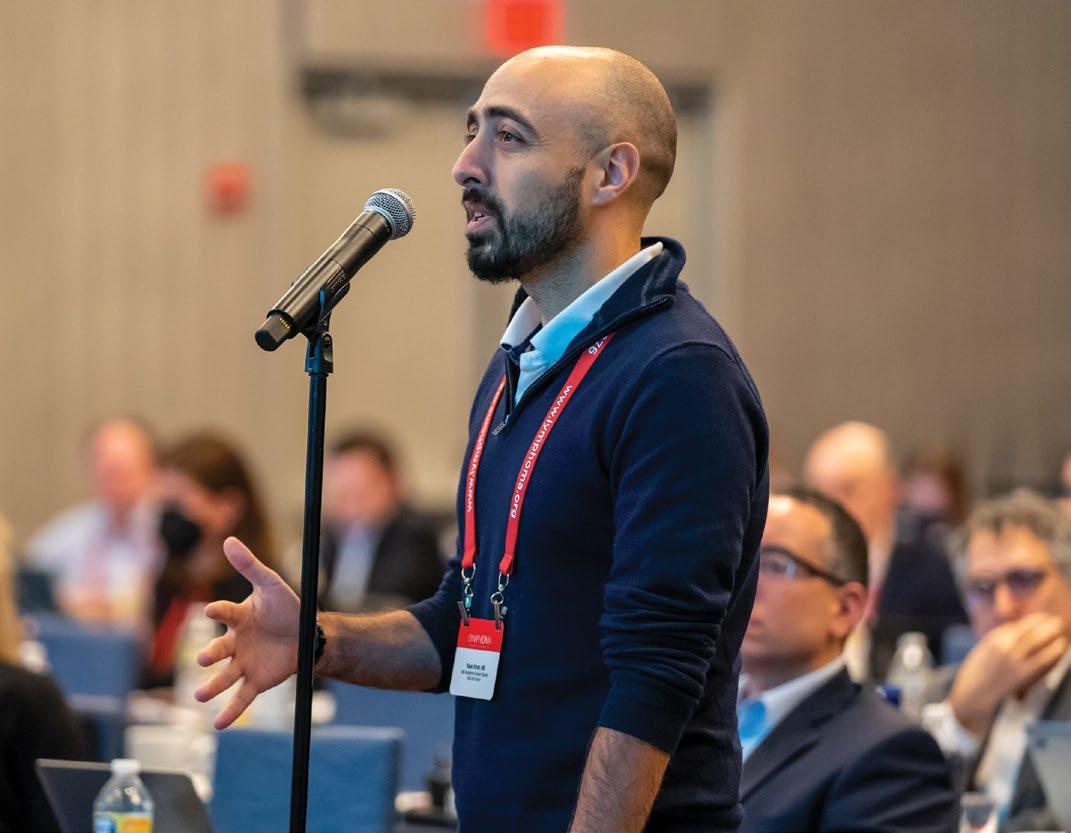
But the role played by the grant funding is also not trivial. Receiving an LRF CDA exactly at the beginning of my faculty appointment has been a blessing, as that has granted me the necessary research time and resources to effectively and timely succeed in my endeavors. My gratitude to the LRF is deep and sincere.
There has been much progress made in the treatment of B-cell lymphomas, including the development of novel therapies like CAR T-cell therapy to treat lymphoma.
Can you describe your work in this area? Do these advancements represent a new frontier in the treatment of relapsed or refractory lymphomas?
My research is indeed committed to improving the efficacy and mitigating the toxicity of CAR T-cell therapy for patients with aggressive B-cell lymphoma. With the support from LRF, I have generated translational data, now published on Leukemia, showing that macrophage biology plays a crucial role in the response to therapies provided right before CAR T-cell infusion, and I am now working on an innovative investigator-initiated trial, where novel agents targeting macrophages will be employed as a bridging therapy to CAR T, and hopefully even replace conditioning chemotherapy in the future. I have also generated clinical data, identifying predictive factors of conversion from partial to complete response after CAR T-cell therapy, and I am actively enrolling in an investigator-initiated trial of consolidation treatment with loncastuximab for these patients. I have also worked with my mentors and collaborators to demonstrate how critical interleukin-1 (IL-1) is in the etiology of CAR T-cell therapy-associated
Continued on the next page 15
neurotoxicity, and while I have already completed an investigator-initiated trial using anakinra (an IL-1 receptor antagonist) for its prophylaxis, I am actively working on the development of novel agents to further mitigate this and other toxicities, including cytopenia. Finally, as mentioned previously, I am leading the development of novel non-Tcell-based allogeneic products, and I am very excited about their safety and efficacy profile. It is a great time to work in the field of cellular therapy, and I am honored to be part of this story.
How has your involvement with LRF evolved since receiving an early career grant?
Considering everything I have received from LRF, which has gone way beyond what I could have hoped for, I have felt immediately committed to paying back. Over the last few years, I have started to review applications for the translational track of the LRF LSRMP. That is an extremely rewarding experience, as it allows me, through my feedback, to give scientific guidance and inspiration for overall career improvement. I also regularly participate as a speaker to the national and local chapters of LRF for patient education, and I have been one of the local leaders for the annual LRF walk. Moving forward, I hope to become a mentor within the LRF LSRMP, in order to be ultimately able to fully give back all the support and guidance I received, and see somebody else blossom, the same way I did, thanks to the LRF.
Why is LRF’s mission and focus on lymphoma-specific research and research programming important? Put another way: How would the lymphoma community be impacted if there was no LRF?
I think the LRF does something unique, which is bringing together from all over the world, basic, translational, and clinical investigators who are enthusiastic about lymphoma. Having in the same room the best minds in the field—for mentoring programs, grant review sessions, disease-specific meetings, and patient education conferences—is not trivial. That fosters ideas, collaborations, and growth. And identifying and nurturing early in their career the future leader in the field is phenomenal, as it optimizes the process of research and care. Lymphoma is a rare disease, and it does not frequently make it to the podium when diluted with other, more frequent oncological conditions. The LRF acknowledges all the work investigators do in the field and values the experience of all patients with lymphoma. Without the LRF, the lymphoma community would not be as strong and successful as I believe it is now.
What research or projects are you currently pursuing that you would like to share with our readers?
In addition to the CAR T-cell therapy-focused research I have already summarized, I am also working on improving the efficacy of immunotherapy for patients with indolent B-cell lymphoma. Thanks to the LRF, I have generated translational data demonstrating that macrophages may mediate resistance to this treatment strategy, which may be overcome using BTK [Bruton’s tyrosine kinase] inhibitors. Data for both patients with relapsed refractory and previously untreated indolent B-cell lymphoma, from an industry-sponsor and an investigator-initiated study, respectively, will be presented at upcoming scientific conferences. I am now analyzing samples obtained from the latter study, trying to understand better how BTK inhibition affects macrophages and how early its combination with immunotherapy can result in minimal residual disease eradication. Building on this, I am also leading an industry-sponsored trial investigating the activity of a SIRPα inhibitor for patients who relapse after immunotherapy, and an investigator-initiated trial combining a CD47 inhibitor with immunotherapy for patients with relapsed indolent B-cell lymphoma. The analysis of samples derived from the latter, using novel multiplexed imaging assays, will help inform future combinations and potentially the generation of macrophage-based cellular therapies. Finally, I am analyzing the immune microenvironment of patients with previously untreated indolent B-cell lymphoma, and I hope to identify biomarkers that will help us better select patients for the use of immunotherapy.
What are you most excited about in the field of lymphoma research today? Why?
In the first place, I am excited by the ability we now have to analyze the immune microenvironment of patients with lymphoma without altering its composition, as I strongly believe that tissue-based novel imaging assay will help us understand in a less-biased way the true mechanism of therapeutic efficacy and resistance in these patients. Secondly, I am sincerely excited by the long duration of response we now see with the use of immunotherapy and cellular therapies in patients with heavily pre-treated lymphoma and the promising safety profile of novel products. When I started, we did not dare to use the term “cure,” but now I see more of my colleagues having the courage to acknowledge that what we do may not just be life-prolonging. The thought of this gets me up in the morning and keeps me going all day and night, no matter how consuming and challenging this work may be. I am privileged to do research in lymphoma these days.
[ FROM THE FIELD ]
PULSE | FALL EDITION 2022
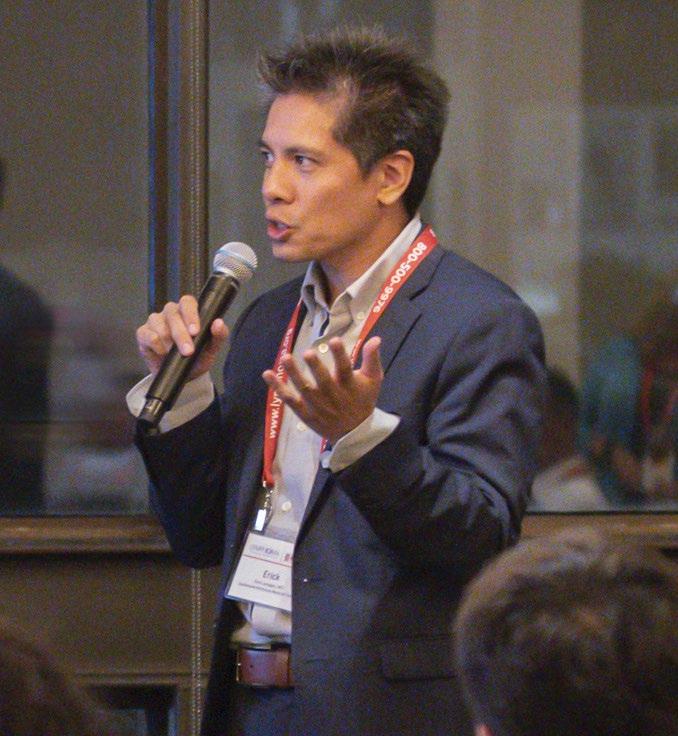
MEET THE NEWLY ELECTED LRF SCIENTIFIC ADVISORY BOARD MEMBERS
The Lymphoma Research Foundation (LRF) welcomed three new members to its elite Scientific Advisory Board (SAB) on July 1. The new members represent distinct specialties that will contribute to the global impact of the Foundation.
The volunteer SAB guides LRF’s research portfolio, seeking out the most innovative and promising lymphoma research projects for support. In addition to their charter of reviewing grant proposals and making recommendations regarding research priorities and funding, the SAB evaluates the progress of ongoing research projects and guides the strategic direction of LRF’s research programs and scientific consortia.
The new members of the SAB include Michael Green, PhD, of The University of Texas MD Anderson Cancer Center; Loretta Nastoupil, MD, of The University of Texas MD Anderson Cancer Center; and Lisa Giulino Roth, MD, of Weill Cornell Medicine.
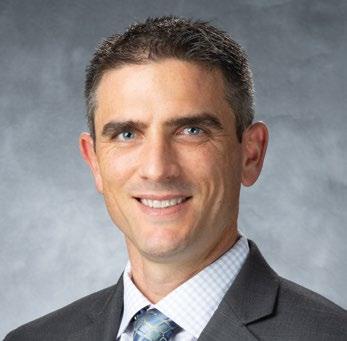
Dr. Green is an Associate Professor and Director of Translational and Laboratory Research in the Department of Lymphoma and Myeloma at The University of Texas MD Anderson Cancer Center. He is also a current member of the LRF Mantle Cell Lymphoma (MCL) Research Consortium. Dr. Green earned his PhD in molecular genetics from Griffith University in Australia before completing postdoctoral research fellowships at DanaFarber Cancer Institute and Stanford University.
Dr. Green’s research interests are focused on understanding how changes to the genetic and structural makeup of chromosomes drive the development of lymphoma, with the goal of identifying potential targets for novel therapies. His lab is also working to identify factors that influence responses to chimeric antigen receptor (CAR) T-cell therapies. Dr. Green hopes that this work can be used to help design new strategies to improve the activity of these drugs as well as minimize potential toxicities.
MICHAEL GREEN, PHD
THE UNIVERSITY OF TEXAS MD ANDERSON CANCER CENTER
[ FROM THE FIELD ] PULSE | FALL EDITION 2022
As a member of the LRF Scientific Advisory Board, Dr. Green is excited to join a cross-sectional team of basic, translational, and clinical researchers to identify and support state-of-the-art lymphoma research. “The lymphoma research community is made up of one of the most dedicated and progress-hungry groups of individuals of any field. … Our sense of community and collective commitment towards improving the outcomes for patients with lymphoma is key to this and is something that the LRF plays an important role in,” he explains. “I am looking forward to contributing my knowledge and passion regarding the role of basic science and mechanistic understanding of lymphoma biology as a key pillar of our efforts to develop new therapies and improve patient outcomes.”
LORETTA NASTOUPIL, MD
THE UNIVERSITY OF TEXAS MD ANDERSON CANCER CENTER
Dr. Nastoupil is an Associate Professor and Deputy Chair in the Department of Lymphoma and Myeloma at The University of Texas MD Anderson Cancer Center. She is also the Director of the Lymphoma Outcomes Database and Section Chief of New Drug Development in the Division of Cancer Medicine. Dr. Nastoupil is inspired in her career as a lymphoma researcher by the connections she builds with her patients and their families and loves seeing how well patients respond to new and emerging therapies.
Dr. Nastoupil’s research is focused on testing new forms of immune therapy in B-cell lymphoma. She has conducted studies ranging from first-in-human trials to studies examining real-world outcomes after approval. “There is nothing more rewarding than to see a phase 1 study result in promising results,” she shares. Dr. Nastoupil is most interested in therapies that use the body’s own immune system to eradicate immune cells and is especially excited about novel chimeric antigen receptor (CAR) T-cell therapies and bispecific antibodies.
After earning her medical degree at The University of Texas Southwestern Medical Center, Dr. Nastoupil completed her clinical residency at the Washington University School of Medicine and her hematology and medical oncology fellowship at Emory University School of Medicine. As a member of the LRF SAB, Dr. Nastoupil is excited to collaborate with key leaders in lymphoma research to expand the real-world impact of their work. “I would like to exchange ideas with the brightest people in the room on how to cure lymphoma,
engage patient advocates to ensure our goals are aligned, and disseminate information to local LRF groups so that all lymphoma patients have access to the latest and greatest information,” she explains.
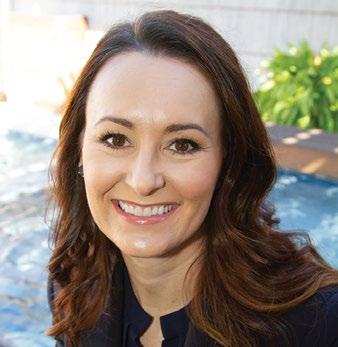 LISA GIULINO ROTH, MD WEILL CORNELL MEDICINE
LISA GIULINO ROTH, MD WEILL CORNELL MEDICINE
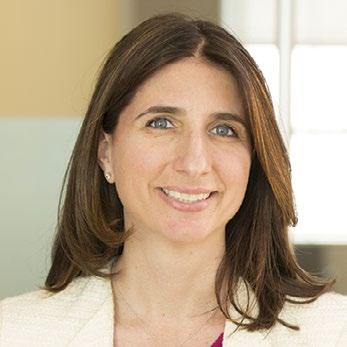
Dr. Roth is an Associate Professor of Pediatrics and Director of Pediatric Oncology at Weill Cornell Medical College. She is also the Director of the Adolescent and Young Adult (AYA) Lymphoma Program at NewYorkPresbyterian/Weill Cornell Medical Center. She was initially inspired to pursue a career in lymphoma research in medical school and has since been motivated by her own experiences as both a lymphoma patient and a clinician.
Dr. Roth’s research focuses on understanding the biology of B-cell lymphomas that affect children and young adults, such as Hodgkin lymphoma, Burkitt lymphoma, diffuse large B-cell lymphoma, and primary mediastinal B-cell lymphoma. Her goal is to use the knowledge gained from her research to help develop novel therapies for both adults and children that are more effective and less toxic. “I am very proud to be leading the first NCI [National Cancer Institute]-funded phase III trial in a rare lymphoma subtype called primary mediastinal B-cell lymphoma,” Dr. Roth shares. Her lab also studies subtypes of lymphoma in which Epstein-Barr virus (EBV) is present, including Burkitt lymphoma, with the hopes of identifying novel therapeutic targets.
Dr. Roth earned her medical degree from NYU Grossman School of Medicine before completing her residency at NewYork-Presbyterian/Weill Cornell Medicine. She served as Chief Fellow during her fellowship in pediatric hematology/oncology at Memorial Sloan Kettering Cancer Center and NewYorkPresbyterian. “The Lymphoma Research Foundation has the remarkable ability to accelerate research findings by bringing together teams of researchers and ensuring that findings can be rapidly translated to the clinic, where they can benefit patients,” she shares. “It is an honor to be working with leaders in lymphoma to improve outcomes for patients.”
19
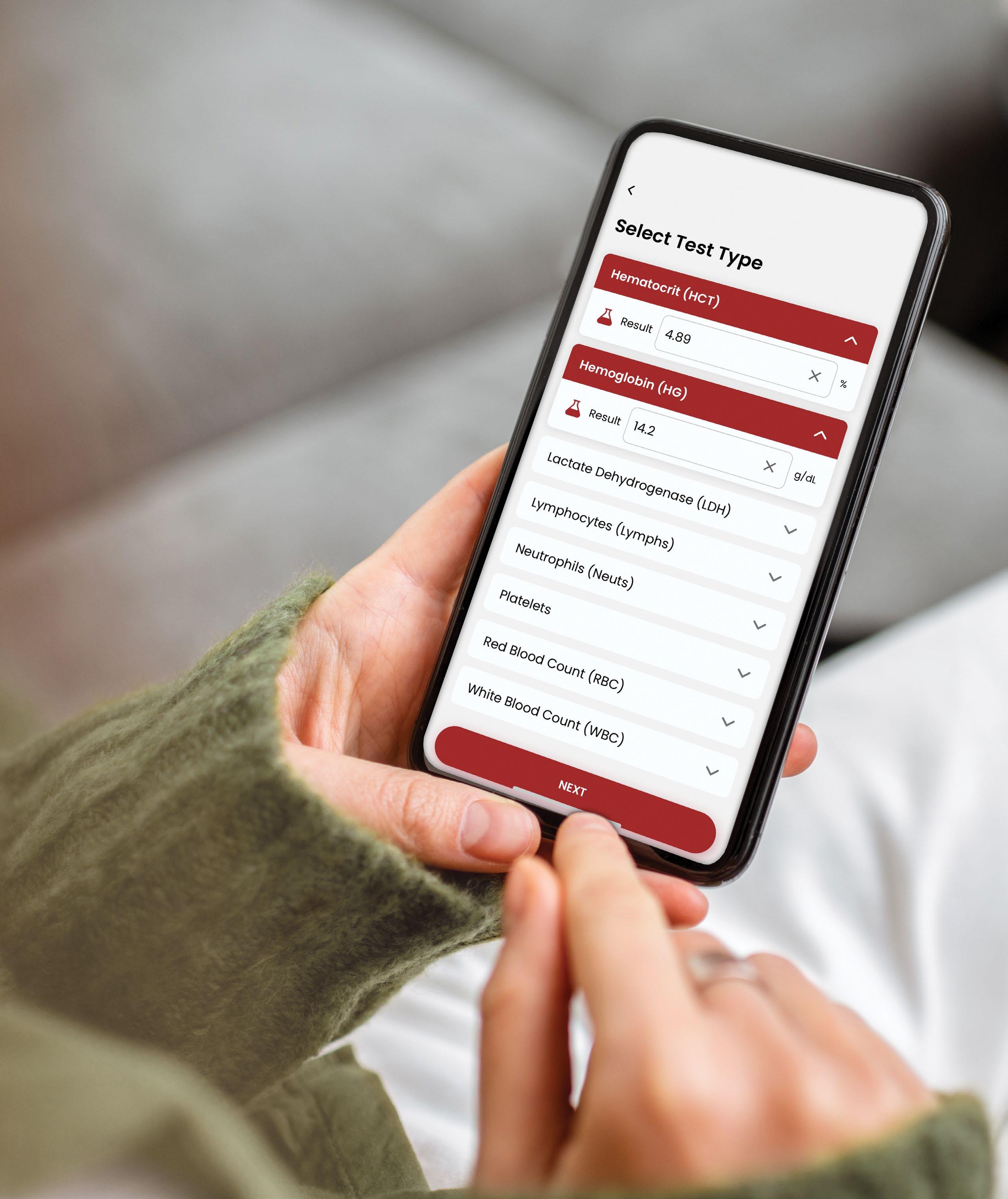

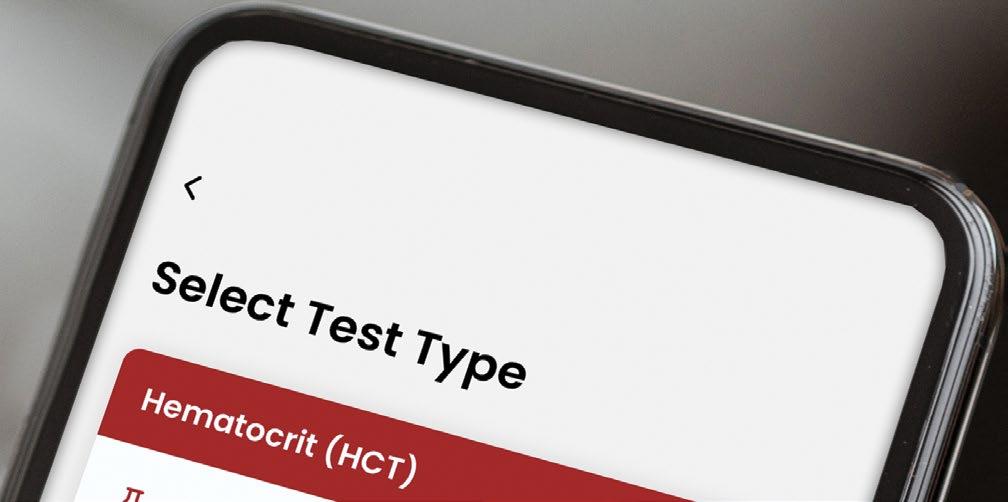
[ LIVING WITH LYMPHOMA ] PULSE | FALL EDITION 2022
PATIENT PERSPECTIVES
MOBILE HEALTH TECHNOLOGY HELPS BLOOD CANCER PATIENTS NAVIGATE DIAGNOSIS
These days, a cell phone is much more than just a phone. It’s a photo album, a GPS, a stereo system, an encyclopedia, a computer, a gaming system, a suite of tools—all in the palm of your hand. One of the many tools that can be accessed via mobile technology are apps intended to help manage your health, sometimes known as mobile health technology.
Mobile health technology, also known as mHealth, is becoming an increasingly popular way to empower patients to take charge of their health by offering an easy way to track symptoms, record appointments, log lab results, and access educational resources. The Lymphoma Research Foundation (LRF) has been leading the way in mobile health technology since the launch of its first-ofits-kind mobile app, Focus on Lymphoma, in 2013. The award-winning app was designed to help patients and caregivers better understand and manage their disease through comprehensive information tailored to the user’s specific lymphoma subtype. It provides tools to help users record/take notes during doctor sessions and track medications, blood results, and symptoms. Building upon the success of Focus on Lymphoma, LRF recently updated the app, providing a new look and enhanced tools to manage a lymphoma diagnosis. The new update makes it easier for app users to access their information
securely across multiple devices through login capabilities and integration with Google and features several valuable tools, including:
Medication Tracker—providing a seamless way for users to track prescriptions through integration with the Food and Drug Administration’s (FDA) National Drug Code (NDC) Directory.
CAR T-Cell Therapy Checklist—helping lymphoma patients and caregivers prepare and document their chimeric antigen receptor (CAR) T-cell therapy journey.
Individualized Support— through connection to LRF Helpline, providing enhanced, individualized support and information, including peer support, clinical trials information, financial assistance, and referrals.
Continued on the next page 21
With mobile health technology, such as Focus on Lymphoma, rapidly changing healthcare and management, Priyanka Pophali, MD, a lymphoma expert from the University of Wisconsin Carbone Cancer Center, shares why apps such as these are so important and how lymphoma patients, survivors, caregivers, and healthcare practitioners can benefit from it.
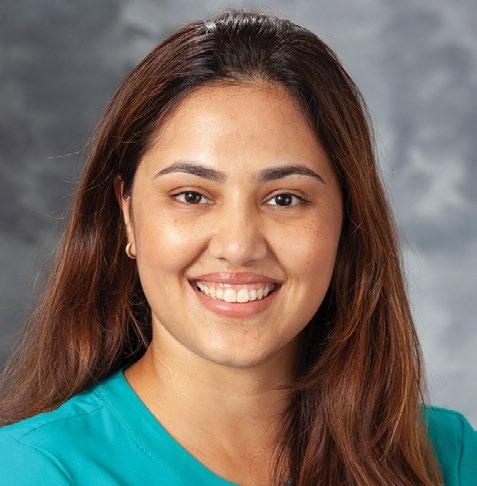
What benefits does mobile health technology like Focus on Lymphoma have for lymphoma patients?
Mobile health technology like Focus on Lymphoma is a great portable tool for patients and their caregivers to navigate the complexities of lymphoma and its treatment. It is easy to access on a personal mobile device. It can keep track of symptoms, blood counts, appointments, voice and written notes, as well as provide educational materials specific to an individual’s type of lymphoma or treatment.
How can mobile health technology be incorporated into a patient’s care plan and their relationship with their healthcare providers?
Mobile health technology can help capture symptoms and side effects the patient experiences in between their scheduled healthcare visits. The patient may feel different from day to day and may not always recall or report all their experienced symptoms at the healthcare visit. Therefore, day-to-day records can be very useful to keep track of symptoms and side effects which need to be factored into treatment decisions and supportive care.
How does using mobile health technology help to empower patients to better understand their disease? There is a large amount of information that patients and caregivers receive at each healthcare visit, which can be overwhelming. The ability to take notes in real time and refer to them as needed in smaller chunks of information helps patients and caregivers understand their disease and treatment process better. It also allows them to come prepared with questions and concerns to their next visit. Having access to a validated source of information through the app is also valuable for learning at their own pace.
What challenges in a lymphoma patient’s journey do you see mobile health technology mitigating?
The patient’s perspective of their lymphoma journey can sometimes be overshadowed by medical data, such as labs, imaging, and other tests obtained at healthcare visits. Patient reported outcomes (PROs) have recently been recognized as very important in research as well as clinical care. The ability to keep track of everyday symptoms through mobile health technology is very valuable to bridge the gap between medical data and patient experience.
Priyanka Pophali, MD
PULSE | FALL EDITION 2022
“Mobile health technology like Focus on Lymphoma is a great portable tool for patients and their caregivers to navigate the complexities of lymphoma and its treatment.”
How is recording audio from doctors’ appointments, using mobile health technology, beneficial for patients?
Firstly, patients often recall only parts of the visit and not all details discussed. Secondly, taking handwritten notes also distracts patients and caregivers from participating actively in the discussion during the visit. Audio records can overcome both these issues. With permission from your doctor, recording audio during the visit, using mobile health technology, can be beneficial to patients by allowing them to replay the conversation multiple times after the visit or share with family/friends.
What is the benefit of a patient using an app to keep track of their symptoms and lab counts? Many patients receive care through multiple clinics/ healthcare systems for convenience, such as minimizing travel time. In these cases, all labs are not accessible within a single healthcare system, and one app which can keep track of all labs is very helpful. Trends in labs are important to follow for clinical decision-making, and therefore viewing them in a graphical format is a great visual tool. Similarly, symptoms in between visits are difficult to record and are important to trend for optimizing patient care.
How can caregivers utilize mobile app technology to support and advocate for the lymphoma patient in their life?
Caregivers have a very important role in patient care. They are witnesses to the patient’s experience at home/away from the healthcare setting. Caregivers can utilize mobile app technology in many of the same ways mentioned above to supplement the patient’s understanding of their disease and its treatment, trends in symptoms, and labs. The app can be used to take notes during healthcare visits and also prepare questions/concerns for the next healthcare visit while at home.
What type of patients would especially benefit from using an app like Focus on Lymphoma?
In my opinion, any patient who has a handheld mobile device that they use on a regular basis may benefit from using Focus on Lymphoma. Technologically savvy patients who prefer their information electronically will probably be able to make the best use of this app.
23
“The ability to keep track of everyday symptoms through mobile health technology is very valuable to bridge the gap between medical data and patient experience.”
A CAREGIVER THAT KEEPS ON GIVING
Roy Bridges has the type of life story you need to read to believe. Starting on a farm in rural northeast Georgia, it includes attending the U.S. Air Force Academy; surviving 226 Vietnam combat missions; serving as a staff officer in The Pentagon; building a family with his wife, Benita; and going all the way to space and back, as Roy was one of the select few pilots of the Space Shuttle Challenger for NASA in the 1980s.
But even astronauts must come back to Earth, and in Roy’s case, that return included his daughter Tanya’s lymphoma diagnosis in 2002.
“At the time, I was serving as center director for the Kennedy Space Center, and my wife and I got a call from our daughter Tanya one evening in October,” Roy explained. “She said, ‘Hey, I’m on my way to UCLA Medical Center. I’ve been diagnosed with stage four non-Hodgkin lymphoma (NHL), and I am on my way to start treatment.’”
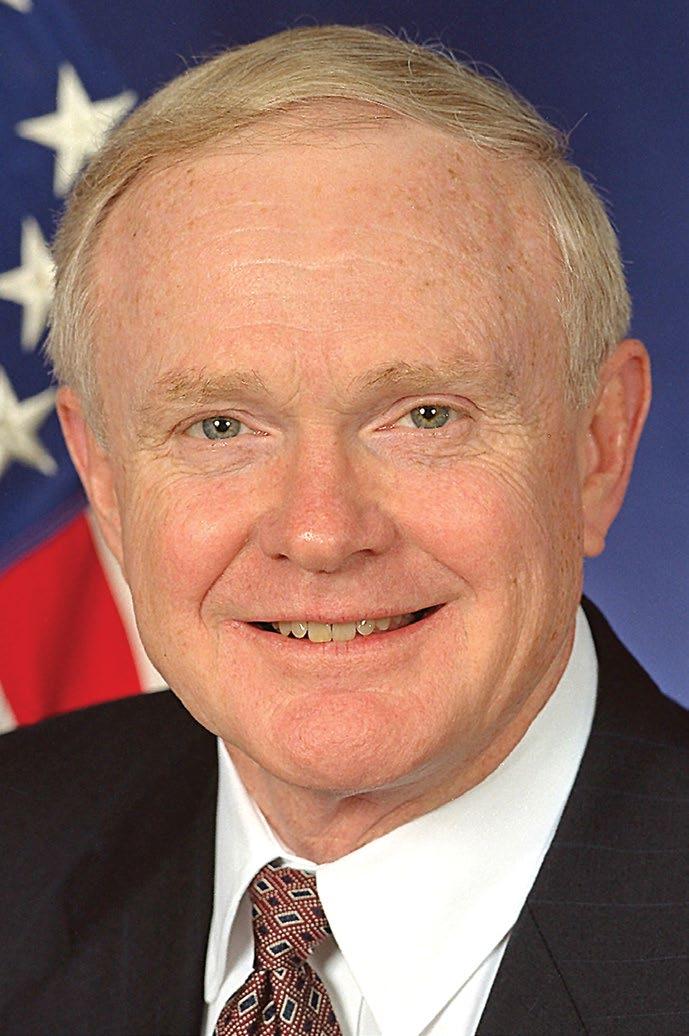
The news came as a shock to Roy and Benita. Tanya was just 32 at the time, and she and her husband had two young children.
“We kind of had an idyllic life, living on the beach in Florida, near the space center, and then suddenly this happened, which was an ‘Oh my God’ moment. Your mind goes to the worst possible place,” Roy explained. “At the time, I just heard ‘cancer,’ and that’s never a good thing, but I didn’t know anything about NHL. We dropped what we were doing to provide support to Tanya and her family, who were living in between San Bernardino and Barstow at the time, in the Mojave Desert.”
Tanya’s initial treatment regimen consisted of chemotherapy and radiation. After experiencing a brief remission, it came back in May 2004. She received
her first bone marrow transplant of her own bone marrow cells, which seemed to be working. However, unfortunately, it returned in the fall of 2004, more aggressive than before. Tanya received a second bone marrow transplant from an anonymous donor in March 2005, and again, seemed to be getting better, but in July 2005, she called her parents to tell them that she was headed back to the hospital.
Initially, Tanya seemed to be doing better in the hospital, but sadly, she was moved to the ICU, and despite efforts to save her, passed away in July 2005.
“The last time I spoke to Tanya was the same day she coded and was sent to ICU—I was supposed to be going out there that day but was running behind on some stuff I needed to get done,” Roy explained. “Tanya said, ‘Well, Dad, I’m feeling fine. I want you to stay and get your work done.’
A few hours later, my wife tells me she’s coded and is in intensive care, so I scrambled to rebook my flight to get to her. Unfortunately, Tanya never regained consciousness.”
The Realities of Being a Caregiver
Prior to her passing, Roy and his wife did everything they could to provide support to Tanya and her family.
“During that time when Tanya would be getting treatment like chemo and radiation, my wife would go out and spend months in California, supporting the
[ LIVING WITH LYMPHOMA ]
PULSE | FALL EDITION 2022
family, watching the kids, and driving her to chemo appointments so that Tanya’s husband could keep working and keep their medical insurance. I was still working at the time and would visit when I could, but my wife would go out for every bone marrow transplant, as there was a several-month recovery period.”
After Tanya’s death, she left behind a now-single dad who had to work and raise two young kids. Roy and Benita would spend extra time with them, going out for holiday periods when the kids were out of school, and the kids would spend summers with Roy and Benita to give their dad time to catch his breath.
“My wife and I put in a lot of work to be supportive of Tanya’s family even after she died because it didn’t stop there,” said Roy. “When it comes to your family, you’ve got to keep providing support.”
Today, both of Tanya’s children are now young adults and making their way in the world. Tanya’s husband, however, was also recently diagnosed with non-Hodgkin lymphoma, and now his daughter is providing support for her dad as he faces his own journey with lymphoma. Recently, he was declared in remission.
Looking back at that difficult time in his life, Roy recounted all he and his wife did for Tanya and her family as their caregivers:
“My wife got Tanya a place to stay right across from the hospital, and we did our best to make sure that at least one of us was by her side in the hospital,” he explained. “We did other things, like getting our blood drawn to provide platelets for Tanya as often as the hospital would let us, but the hardest part in all of this after losing your daughter is the second-guessing yourself—was there anything else we could have done?”
After Tanya died, Roy decided to retire from NASA. He and his wife needed some time to process and comfort each other.
Supporting Research in Tanya’s Memory
Following Tanya’s passing, Roy and his wife wanted to learn more about lymphoma research. During her treatment, they learned bits about lymphoma here and there, but after she died, they were eager to learn more about the complexity of the disease and what was being done to research it.
“We were blown away by the complexity of this disease and that everybody diagnosed with lymphoma didn’t have nearly the same experience,” Roy said. “We found the Lymphoma Research Foundation (LRF) after Tanya died and decided to start supporting the organization in her memory, in the hopes of helping other individuals diagnosed with lymphoma have a better outcome than her.”
25
“As we work toward cures, I am hopeful that with new technology and progress being made we will be able to target lymphoma better and leave people with less side effects and a better quality life as they fight this disease.”
Roy suggests to others that they take as many notes as possible to help stay on top of everything—as the amount of information and things to track can often be overwhelming.
Roy continues to support LRF to help further the Foundation’s mission and advance lymphoma research to ensure a brighter future for all those impacted by this disease. He does so not only in his daughter’s honor, but also with his son-in-law top of mind.
“When my son-in-law Tom was diagnosed with lymphoma, I reached out to LRF, and they sent me detailed information on his particular subtype, which I shared with him,” says Roy. “The resources and support LRF provide to patients is invaluable and helps people like my son-in-law ask more informed questions of their doctors. As we work toward cures, I am hopeful that with new technology and progress being made, we will be able to target lymphoma better and leave people with less side effects and a better-quality life as they fight this disease.”
A Caregiver Again
While Roy had hoped that his experience with being a cancer caregiver had ended with his daughter, his wife, Benita, was unfortunately diagnosed with pancreatic cancer in 2020, and Roy became her sole caregiver. Benita sadly succumbed to her cancer in July 2022, after a two-year battle with the disease, in the midst of the pandemic.
“During Benita’s treatment, I was her ‘chauffeur, cook, and bottle washer,’ as I call it,” said Roy. “I did everything from cooking foods that she could eat and tolerate, shopping for groceries and picking up her meds because she couldn’t go out during the pandemic, and taking extra precautions not to contract COVID and put either of us at risk.”
Roy says that he set out to be as upbeat as a caregiver as he could, and support Benita without being too overbearing.
“I kept a log of every little thing that happened, took her to and from appointments, kept an eye on things without being a pest, made sure she was taking her supplements— it’s just a lot of little things you do. Then of course, when you go to the doctor, you’re the one that shares all these details with the doctor.”
From his experiences with being a cancer caregiver, Roy suggests to others that they take as many notes as possible to help stay on top of everything—as the amount of information and things to track can often be overwhelming. He also shares that this helps you to become an active advocate for the patient you are supporting.
In addition to note-taking, being a caregiver reminded Roy of the importance of family and friends. Roy and Benita moved to Colorado in 2013 to be closer to family, and he says that having their support to talk and comfort him has been invaluable to him.
A lymphoma diagnosis not only affects the patient; it affects their caregivers too. While being a caregiver can often be a rewarding experience, it can also be a very challenging one.
The Lymphoma Research Foundation (LRF) offers a wide range of resources for caregivers, including a topic-specific fact sheet to help you navigate the responsibilities of caregiving.
Visit lymphoma.org/publications to download it for free.
[ LIVING WITH LYMPHOMA ]
PULSE | FALL EDITION 2022
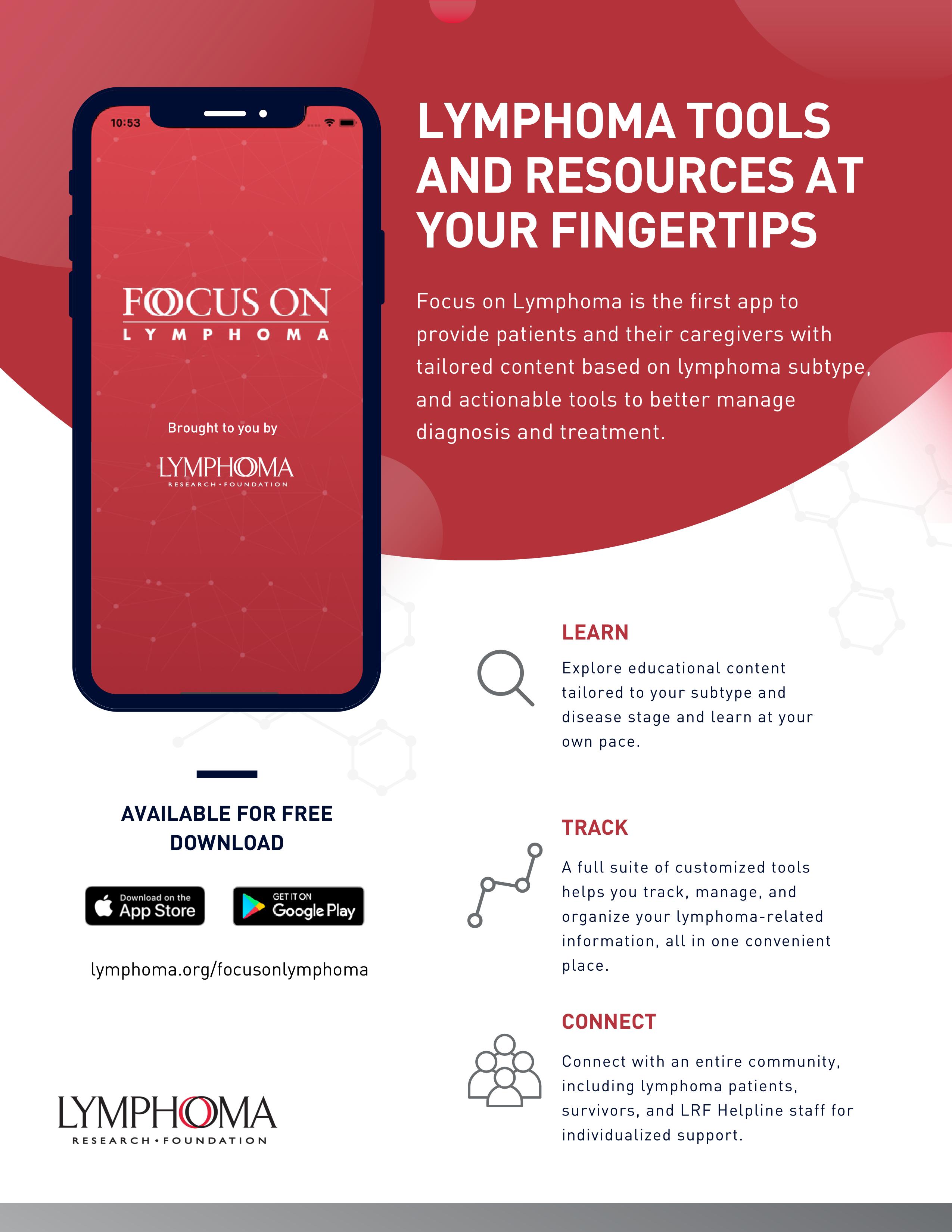
lymphoma.org/resources/ educationresources/mobileapp
SCIENTIFIC ADVISORY BOARD
The Lymphoma Research Foundation’s volunteer Scientific Advisory Board, comprised of 45 world-renowned lymphoma experts, guides the Foundation’s research activities, seeking out the most innovative and promising lymphoma research projects for support.
2022-2023 MEMBERSHIP
SONALI M. SMITH, MD, FASCO Chair The University of Chicago
ANN S. LACASCE, MD, MMSc Chair-Elect Harvard Medical School Dana-Farber Cancer Institute
RANJANA ADVANI, MD Stanford University School of Medicine
ASH A. ALIZADEH, MD, PhD Stanford University School of Medicine
STEPHEN ANSELL, MD, PhD Mayo Clinic, Rochester
KRISTIE A. BLUM, MD Winship Cancer Institute of Emory University
JENNIFER BROWN, MD Dana-Farber Cancer Institute
JAMES CERHAN, MD, PhD Mayo Clinic, Rochester
ETHEL CESARMAN, MD, PhD
NewYork-Presbyterian Hospital Weill Cornell Medicine
BRUCE D. CHESON, MD, FACP, FAAAS, FASCO Past Chair, 2010-2012 The Center for Cancer and Blood Disorders
SANDEEP DAVE, MD, MS Duke University
KIERON M. DUNLEAVY, MD Georgetown Lombardi Comprehensive Cancer Center
KOJO S.J. ELENITOBA-JOHNSON, MD Memorial Sloan Kettering Cancer Center
ANDREW M. EVENS, DO, MSc, FACP Rutgers Cancer Institute of New Jersey
CHRISTOPHER R. FLOWERS, MD, MS
The University of Texas MD Anderson Cancer Center
JONATHAN W. FRIEDBERG, MD, MMSc
University of Rochester James P. Wilmot Cancer Institute
LEO I. GORDON, MD, FACP
Past Chair, 2015-2017
Robert H. Lurie Comprehensive Cancer Center of Northwestern University
MICHAEL GREEN, PhD
The University of Texas MD Anderson Cancer Center
THOMAS M. HABERMANN, MD
Past Chair, 2017-2019 Mayo Clinic, Rochester
STEVEN M. HORWITZ, MD Memorial Sloan Kettering Cancer Center
ERIC D. HSI, MD Wake Forest
BRAD S. KAHL, MD Washington University School of Medicine
KARA KELLY, MD
Roswell Park Comprehensive Cancer Center University at Buffalo Jacobs School of Medicine and Biomedical Sciences
JOHN P. LEONARD, MD Past Chair, 2012-2015 NewYork-Presbyterian Hospital Weill Cornell Medicine
BRIAN K. LINK, MD University of Iowa
IZIDORE S. LOSSOS, MD University of Miami Health System Sylvester Comprehensive Cancer Center
PETER MARTIN, MD Weill Cornell Medicine
ARI MELNICK, MD NewYork-Presbyterian Hospital Weill Cornell Medicine
LINDSAY MORTON, PhD National Cancer Institute
LORETTA NASTOUPIL, MD
The University of Texas MD Anderson Cancer Center
TERESA PALOMERO, PhD Institute for Cancer Genetics, Columbia University
LAURA PASQUALUCCI, MD Institute for Cancer Genetics, Columbia University
BARBARA PRO, MD Columbia University H. Irving Comprehensive Cancer Center
LISA RIMSZA, MD Mayo Clinic, Arizona
LISA GIULINO ROTH, MD Weill Cornell Medicine
KERRY J. SAVAGE, MD BC Cancer, Vancouver
DAVID W. SCOTT, MBChB, PhD BC Cancer, Vancouver
LAURIE SEHN, MD, MPH BC Cancer, Vancouver
MARGARET SHIPP, MD Harvard Medical School Dana-Farber Cancer Institute
EDUARDO M. SOTOMAYOR, MD Tampa General Hospital
CHRISTIAN STEIDL, MD BC Cancer, Vancouver
JOHN M. TIMMERMAN, MD
UCLA Jonsson Comprehensive Cancer Center
SVEN de VOS, MD, PhD
UCLA Jonsson Comprehensive Cancer Center
HANS-GUIDO WENDEL, MD
Memorial Sloan Kettering Cancer Center
ANDREW D. ZELENETZ, MD, PhD
Immediate Past Chair, 2019-2021 Memorial Sloan Kettering Cancer Center
MEMBERS EMERITUS
MORTON COLEMAN, MD
NewYork-Presbyterian Hospital Weill Cornell Medicine
KANTI R. RAI, MD Donald and Barbara Zucker School of Medicine at Hofstra/Northwell
MICHAEL E. WILLIAMS, MD, ScM
University of Virginia Cancer Center
PULSE | FALL EDITION 2022


Giving Tuesday ................................................................... 11.29 Información Sobre CAR T-Cell Therapy ............................................... 11.29 Update on T-Cell Lymphoma Webinar ................................................. 12.7 Ask the Doctor: Treatment Options and Clinical Trials .................................... 12.15 2023 Virtual National Lymphoma Rounds .................................................. 1.26 New York Lymphoma Rounds ....................................................... 2.16 Washington, DC Lymphoma Rounds .................................................. 2.23 San Francisco Lymphoma Rounds .................................................... 3.2 Los Angeles Marathon ............................................................. 3.19 Philadelphia Lymphoma Rounds ..................................................... 3.21 Chicago Lymphoma Rounds ......................................................... 3.30 UPCOMING EVENTS Want to receive information about Lymphoma Research Foundation events happening in your area? Visit lymphoma.org/emailsignup to select your email preferences and stay up to date with the latest from the Foundation. 29
NONPROFIT
Wall Street Plaza 88 Pine Street, Suite 2400 New York, NY 10005
HELP ACCELERATE THE PACE OF CLL/SLL

RESEARCH
The Lymphoma Research Foundation (LRF) is proud to establish the Kanti R. Rai, MD Clinical Scholar, which will provide permanent funding for chronic lymphocytic leukemia/small lymphocytic lymphoma (CLL/SLL) investigators as part of the Foundation’s research grant program. The grant will provide research funding, education, and mentoring from the Foundation’s elite Scientific Advisory Board (SAB) to a junior investigator interested in CLL/SLL research. In addition, this program recognizes Dr. Rai’s global leadership in the field and his commitment to LRF’s mission.
To learn more, contact Kate LeBoeuf at 646 531 5184 or kleboeuf@lymphoma.org, or make a gift at lymphoma.org/rai

ORGANIZATION U.S. POSTAGE PAID NEW YORK, NY PERMIT NO. XXX







 Meghan Gutierrez Chief Executive Officer
Meghan Gutierrez Chief Executive Officer

















 LISA GIULINO ROTH, MD WEILL CORNELL MEDICINE
LISA GIULINO ROTH, MD WEILL CORNELL MEDICINE










